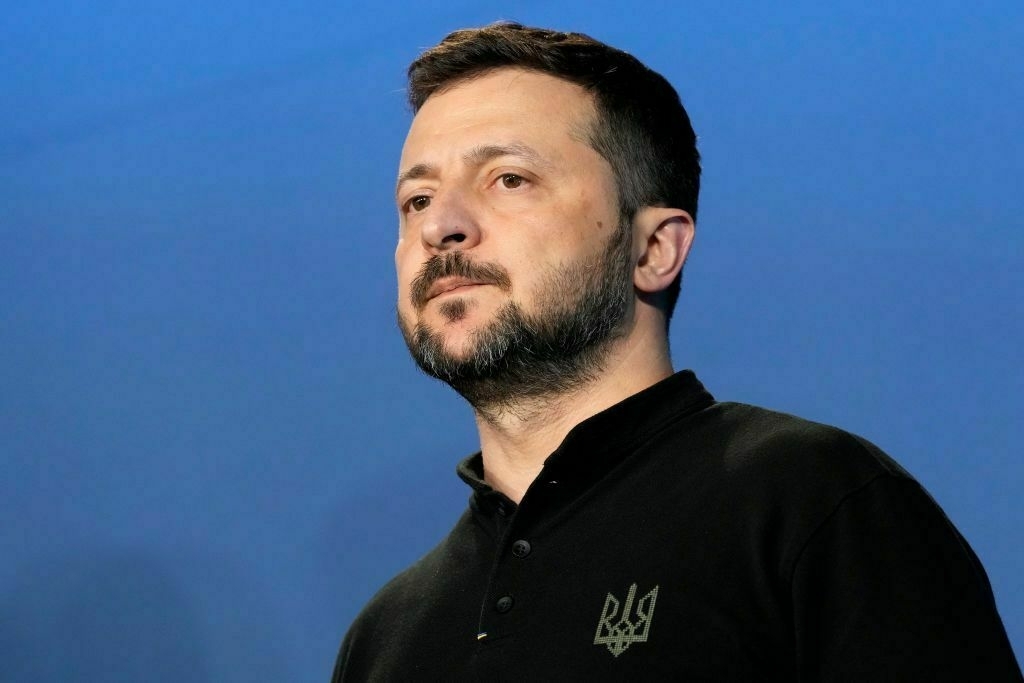-
Unless you act, 'it's just rhetoric' — Baltic states skeptical of Western European leadership
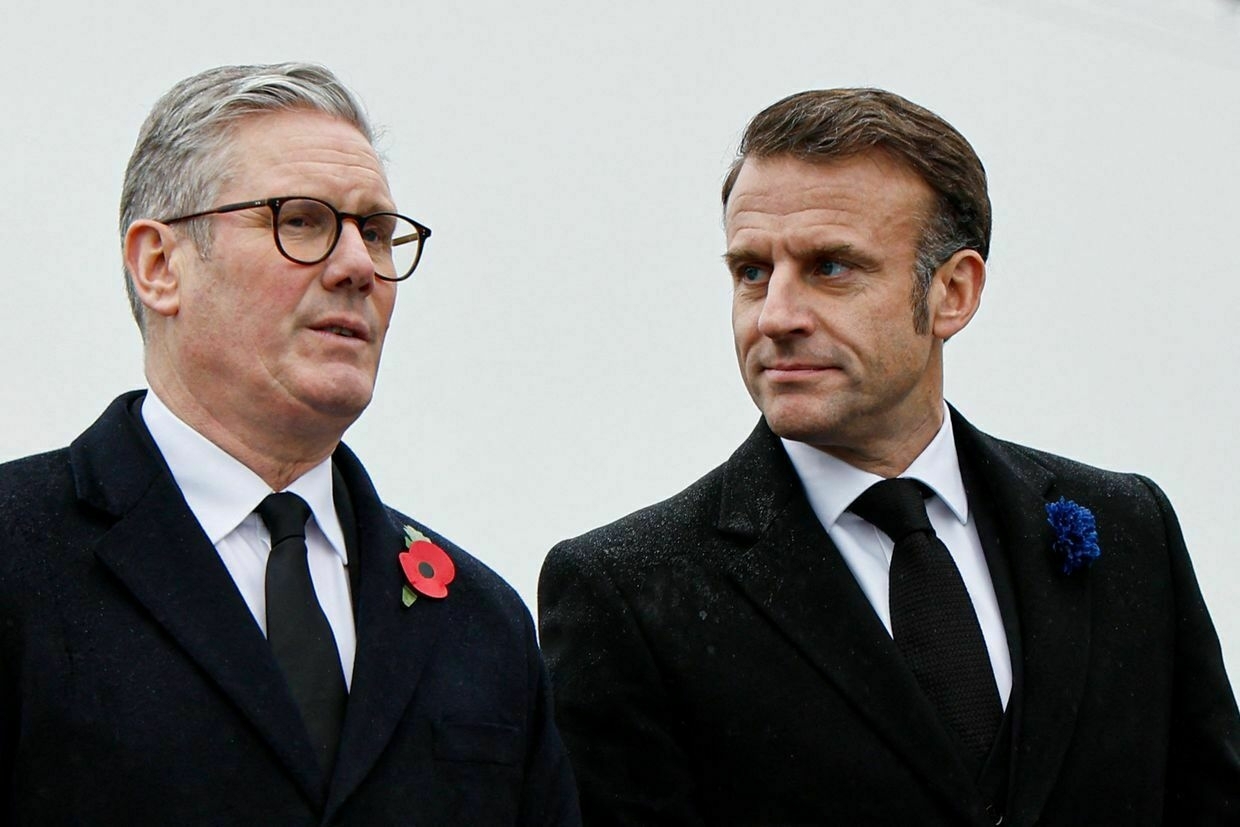
As the U.S. chooses an increasingly hostile posture toward Europe, the U.K. and France have been gearing up to lead the continent’s defense without Washington.
French President Emmanuel Macron has coined the term “strategic autonomy,” which envisions a self-sufficient Europe that can defend itself and export its agenda without the need for American approval.
Those sitting within the range of Russian guns, however — Lithuania, Latvia, and Estonia — are far from ready to ditch the current transatlantic defense model, even under the chaotic leadership of U.S. President Donald Trump.
“Our region — historically reliant on strong transatlantic ties — now faces a changing geopolitical landscape where U.S. commitments to NATO and European security are increasingly uncertain,” Eitvydas Bajarunas, ambassador at Lithuania’s Foreign Ministry and visiting fellow at the Center for Europe Policy Analysis (CEPA), told the Kyiv Independent.
“I am pleased with the notion of stronger European defense, but we are quite in conflict with the ‘strategic autonomy’ concept. That’s not our aim,” Bajarunas said.
‘You can’t trust Russians’ — Europe’s Ukraine peacekeeping plans face one obvious hurdleStrong statements made after a summit of European leaders in Paris on March 27 demonstrated two things — France and the U.K. are determined to send peacekeepers to Ukraine, but the plans are currently hostage to the whims of the Kremlin. “You cannot trust the Russians any further than youThe Kyiv IndependentAlex Cadier
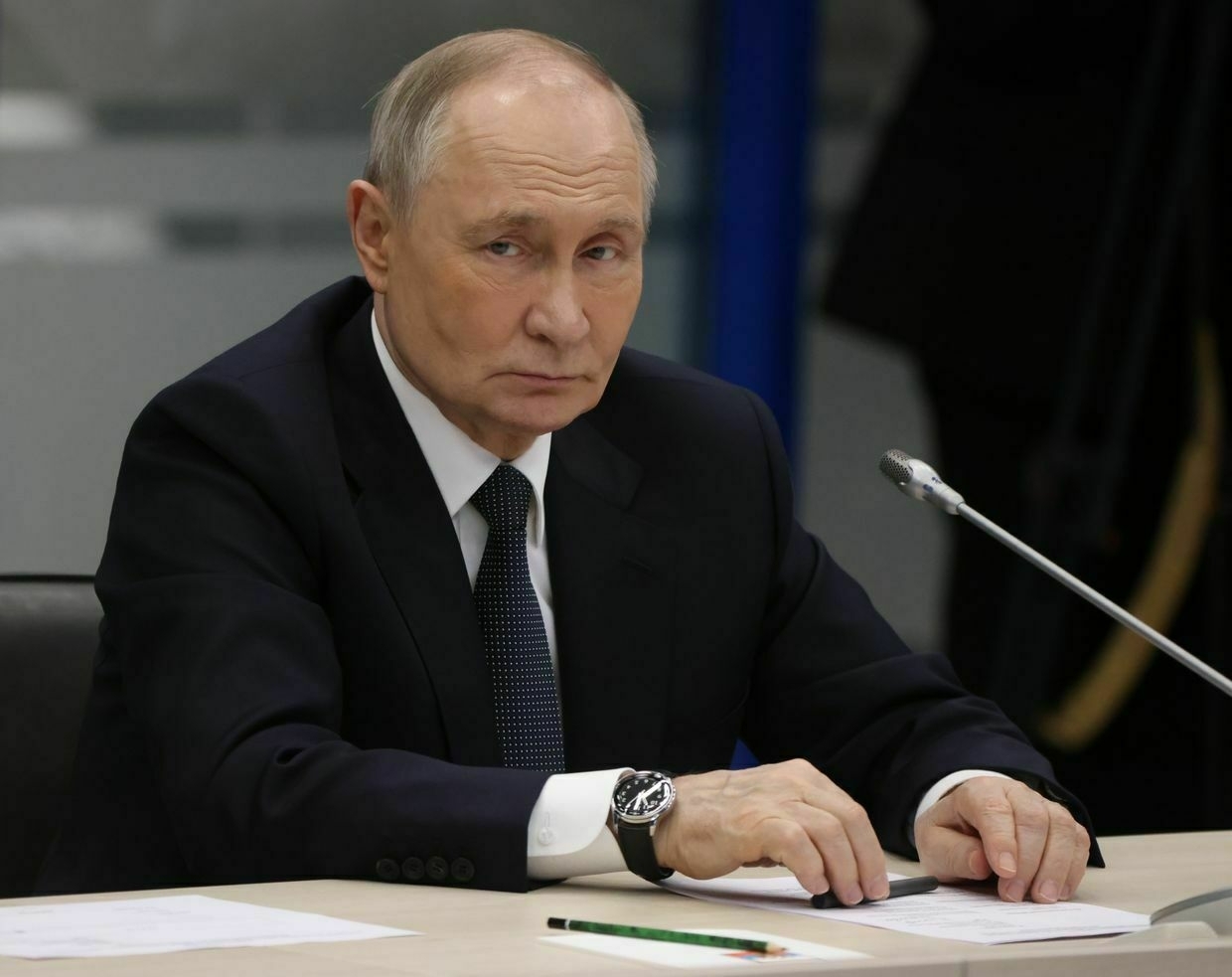
US bulwark against Russian threatSince the end of the Cold War, the Baltic nations, Poland, and other countries of the former Eastern Bloc have seen membership in the U.S.-led NATO as the safest bulwark against a growingly hostile Russia.
Bordering Russia and its ally Belarus, the three Baltic nations understand that the breakdown of this security structure would threaten their very existence.
After Moscow launched its all-out war against Ukraine in 2022, the U.S. dispatched an additional 20,000 troops to reinforce the alliance’s eastern frontier, bringing up the total number of its troops on the continent to over 100,000.
Analysts estimate that as of 2024, the U.S. military deployment in Europe included some 14,000 U.S. soldiers in Poland, 1,000 in Lithuania, and 700 in Estonia. While a relatively meager force, their presence ensures that if anybody attacks host countries, they face U.S. soldiers from day one.
Now, Europe fears that the Trump administration might withdraw the 20,000 soldiers sent by then-U.S. President Joe Biden as it seeks a rapprochement with the Kremlin and a swift peace deal in Ukraine.
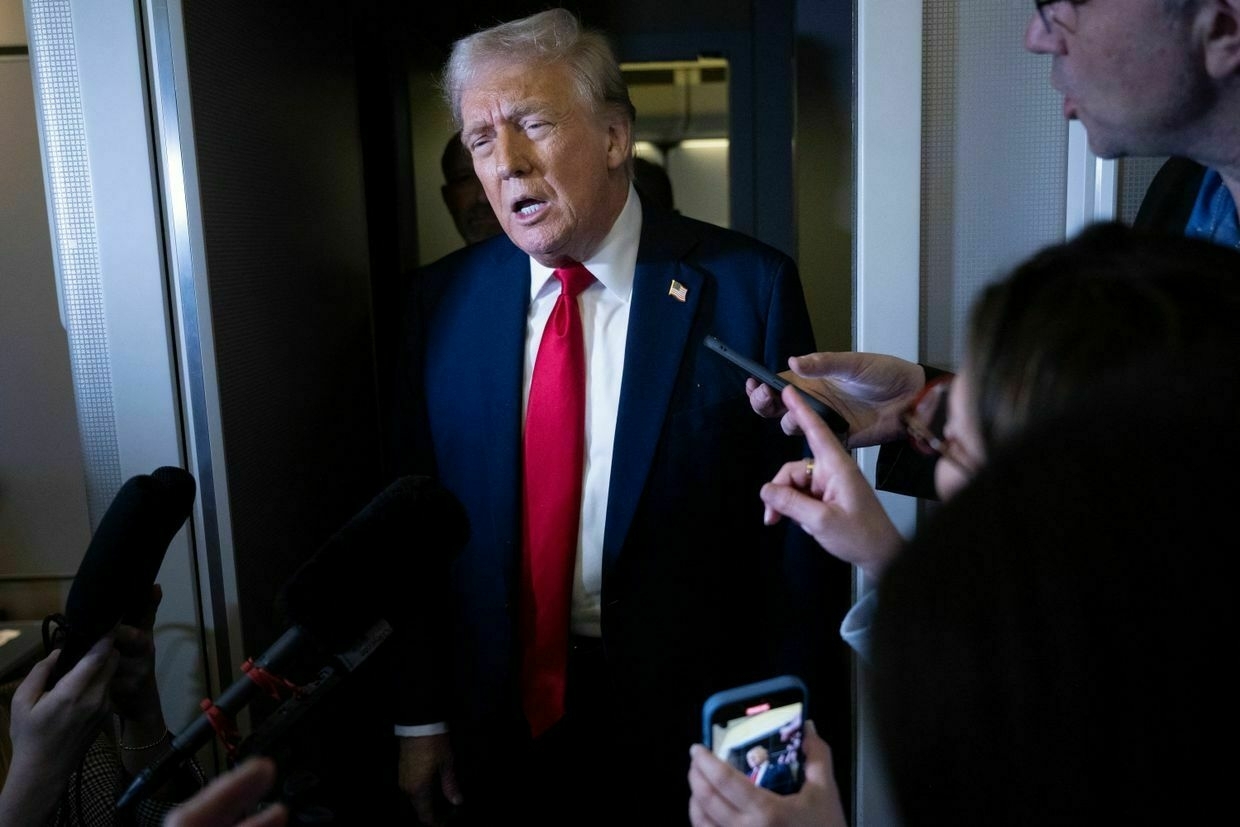
U.S. President Donald Trump speaks to members of the press while returning to Washington, D.C., on Air Force One in Fredericksburg, Virginia, on March 30, 2025. (Brendan Smialowski / AFP via Getty Images) Trump also declared that the U.S. would not defend NATO members who do not spend their share on defense. Theoretically, this should not worry Poland or the Baltic states — the alliance’s leading spenders — but such a direct challenge to Article 5 is more than concerning.
While the four countries plan to raise their defense spending to 5% of GDP or more in the coming years, they would be hard-pressed to face Russia on their own.
The combined population of the three Baltic states is just some 6 million. Even in Poland, a country of nearly 40 million, security officials warn that the military has enough supplies to resist enemy aggression for a “week or two” before NATO would have to step in.
Ukraine-US talks on minerals deal ongoing, not tied to NATO membership, source saysUkrainian and U.S. government and legal teams continue discussions on the mineral deal, a source in the Presidential Office told the Kyiv Independent on March 31 as U.S. President Donald Trump is escalating his rhetoric on the agreement.The Kyiv IndependentOleksiy Sorokin
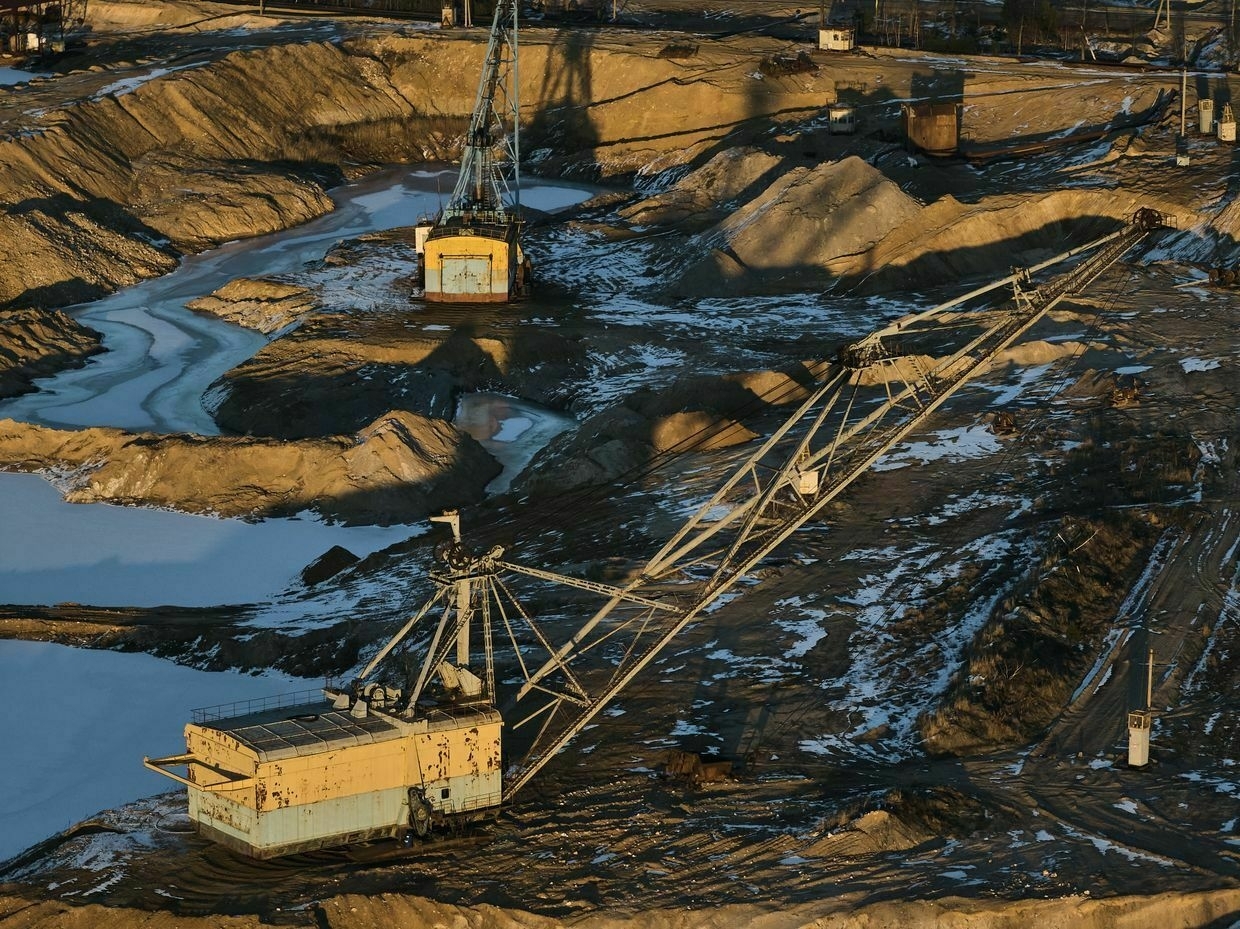
Balancing between Europe and USDays after his visit to Washington, Macron said on Feb. 28 that Europe must “rediscover taste for risk, ambition, and power” and abandon its “happy vassalage” under the U.S.
This Gaullist perspective is at odds with U.K. Prime Minister Keir Starmer, who seeks to mobilize Europe’s commitment without burning bridges with the U.S.
Poland and the Baltics have welcomed Europe’s security resurgence, and their leaders even spoke positively about Macron’s proposal to extend the French nuclear umbrella to include European allies.
European troops also have a significant presence in the Baltic countries, with a German-led NATO battlegroup stationed in Lithuania and a U.K.-French battlegroup in Estonia.
Indeed, some see Trump’s foreign policy shift as a wake-up call for European countries to take responsibility for their security.
If Europe does not wake up now, “we might have to declare it dead,” former Lithuanian Foreign Minister Gabrielius Landsbergis told the Kyiv Independent in an interview in February.
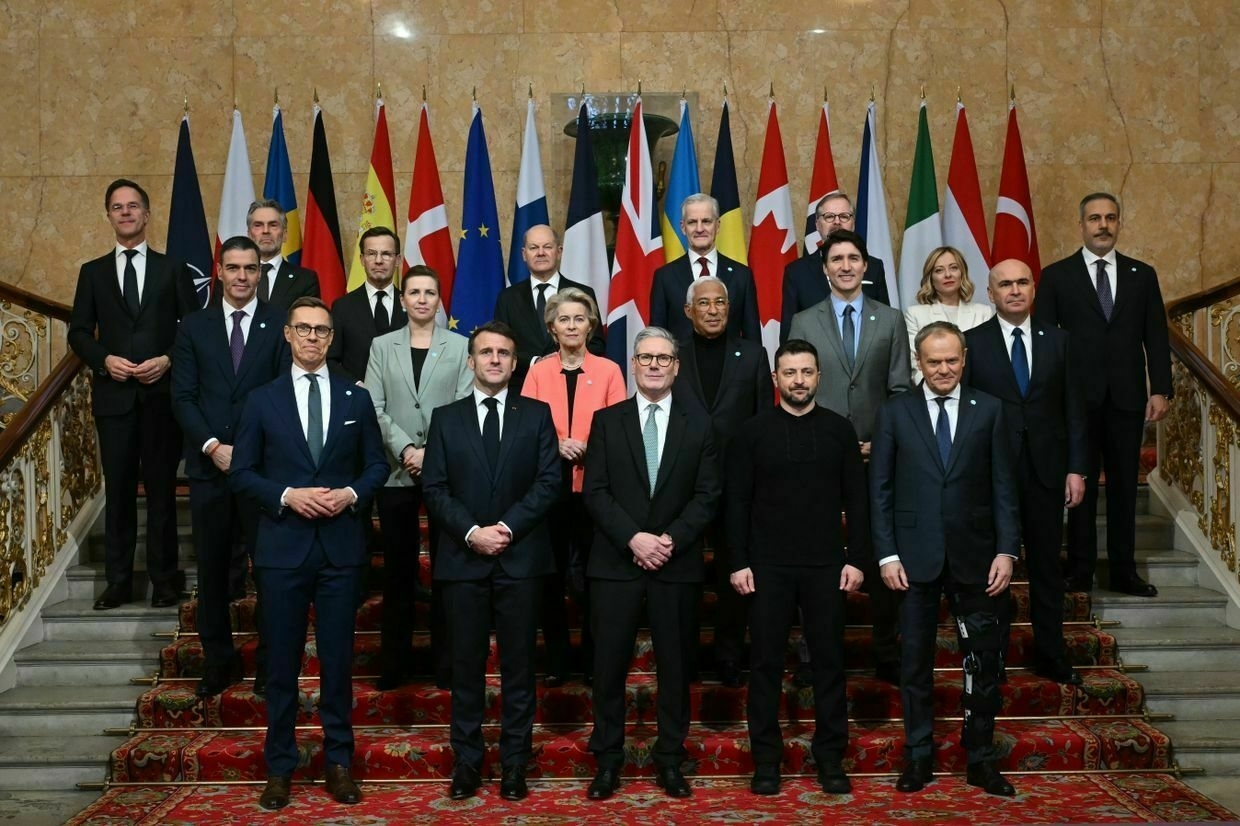
European leaders pose for a group photo at Lancaster House during a summit in London, England, on March 2, 2025. (Justin Tallis / WPA Pool / Getty Images) “We recognize a need for Europe to take greater responsibility and contribute more for transatlantic security. More European leadership is needed for European security,” a spokesperson of the Latvian Foreign Ministry told the Kyiv Independent.
But few are ready to shut the door on the transatlantic ties. NATO’s easternmost members feel that despite that ongoing European rhetoric, without the U.S., their security is at risk.
Much of the skepticism stems from a poor record of strong European commitment.
“…Unless you pay for something, then it’s just a lot of rhetoric.”
"Unfortunately, historically, Europe's defense initiatives have often been limited to mere discussions or over-ambitious and controversial plans for 'European Army' without substantial practical implementation," the Lithuanian diplomat added.
"...Unless you pay for something, then it's just a lot of rhetoric," said Estonia's former president, Toomas Hendrik Ilves, pointing to the fact that France — among others — blocked the EU's planned 40 billion euro ($43 billion) military aid package for Ukraine.
Another glaring fact is that France, a military powerhouse and the EU's second-largest economy, committed only some 0.18% of its GDP in bilateral aid and 0.34% under the EU auspices to Ukraine.
In comparison, Estonia is on top of the scoreboard with 2.2% of its GDP in bilateral aid, with Lithuania and Latvia coming in third and fourth with 1.8% and 1.5%, according to the Kiel Institute for the World Economy.
The Baltic countries have lauded the European Commission's ReArm plan to unleash 800 billion euros ($861 billion) in defense spending and have reinforced security cooperation within bilateral and regional formats, such as the U.K.-led Joint Expeditionary Force (JEF).
However, "it is crucial that these efforts do not lead to the creation of structures that duplicate or compete with NATO," Bajarunas stressed, presenting them instead as a chance to enhance "Europe's contribution to collective defense."
"More cooperation and synergies are needed between the EU and NATO to close capability gaps. Stronger Europe means stronger NATO," the Latvian Foreign Ministry spokesperson said.
Shifting balance of powerWhen Starmer hosted the leaders of 15 countries on March 2 to discuss security guarantees for Kyiv, there were three notable omissions among the invitees — Lithuania, Latvia, and Estonia.
The episode, which ended with Starmer issuing an apology, is emblematic of concerns about Western European leadership — a tendency to sidestep those on the eastern flank.
The disparity between the Baltics and some Western nations in terms of resources allocated to Ukraine and defense evokes a sense of unfairness.
"If Lithuania… spends 5% of GDP (on defense) because we're worried that (Russian President Vladimir) Putin will come for us, and Belgium spends 2.1% of its GDP because they're not worried," it means it will be only Lithuania's "schools and roads and police that will suffer," Landsbergis told the Kyiv Independent.
"But what we are really defending is Europe. We will be defending Belgium as well," the former minister added when discussing European defense spending plans.
According to Ilves, Western Europe has traditionally been "completely dominant" in political and military matters, even after the eastward enlargement of the EU and NATO. But Russia's all-out invasion of Ukraine may have marked a shift.
In 2024, two Baltic politicians came to lead the European Commission's top foreign and security policy posts — Kaja Kallas from Estonia as the High Representative for Foreign Affairs and Andrius Kubilius from Lithuania as the Defense Commissioner.
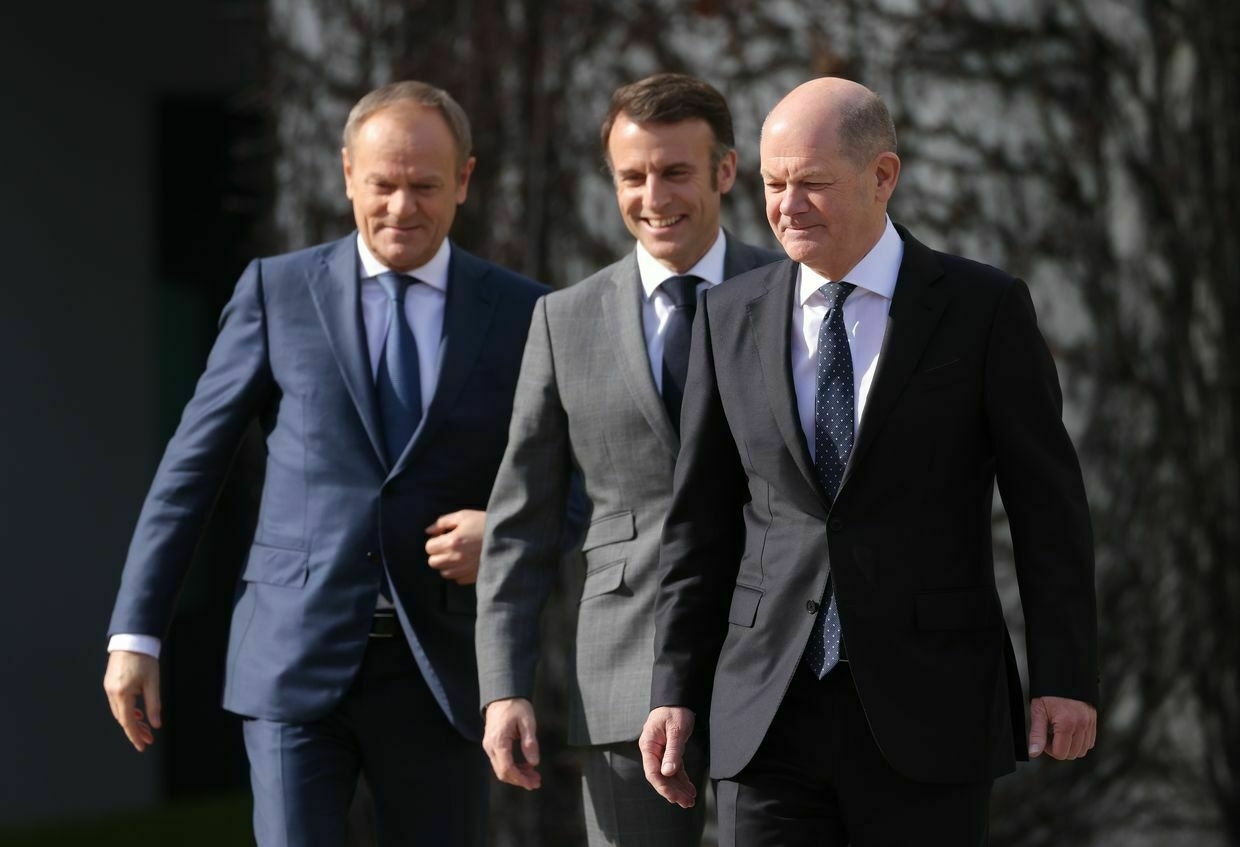
Polish Prime Minister Donald Tusk, French President Emmanuel Macron, and German Chancellor Olaf Scholz prepare to review a guard of honor at the Chancellery before talks in the "Weimar Triangle" format in Berlin, Germany, on March 15, 2024. (Sean Gallup / Getty Images) The situation "has slowly changed, we're (the Baltics) getting in a better position, mainly because of Poland… You cannot ignore Poland," Ilves said.
Poland has emerged as a new heavyweight on the European security scene with massive purchases of tanks, jets, and other military hardware, aiming to spend 4.7% of GDP on defense this year.
The Polish voice also became more relevant with Prime Minister Donald Tusk's pro-European shift and the revitalization and expansion of formats like the Weimar Triangle, which also includes France and Germany.
These developments seem to be inspiring a more "inclusive approach to defense planning" and "efforts to integrate Eastern European perspectives into broader defense strategies, Bajarunas said.
But despite the surge of activity in London, Paris, and Brussels, nations in close proximity to Russia continue to pin their hopes on the U.S. Efforts to keep Trump in the game are evidenced by a recent trip of Finnish President Alexander Stubb to Mar-a-Lago over the weekend.
Stubb's visit was "unofficial," according to a press release from the Finnish government. It involved breakfast, lunch, and a round of golf.
Even though the Baltics, as well as Poland and the Nordic countries, have demonstrated their commitment to defense, Trump provided few assurances in return. His recent steps signal that a major restructuring of Europe's security order may be inevitable.
As Ukraine’s fate hangs in the balance, ‘Soviet’ command culture damages war effortLast February, a Ukrainian company commander going by his callsign Veter was ordered to send his people to reinforce another unit’s position over the next few hours. He was told that four National Guardsmen were holding the position on the other side of the village they were defending inThe Kyiv IndependentNatalia Yermak
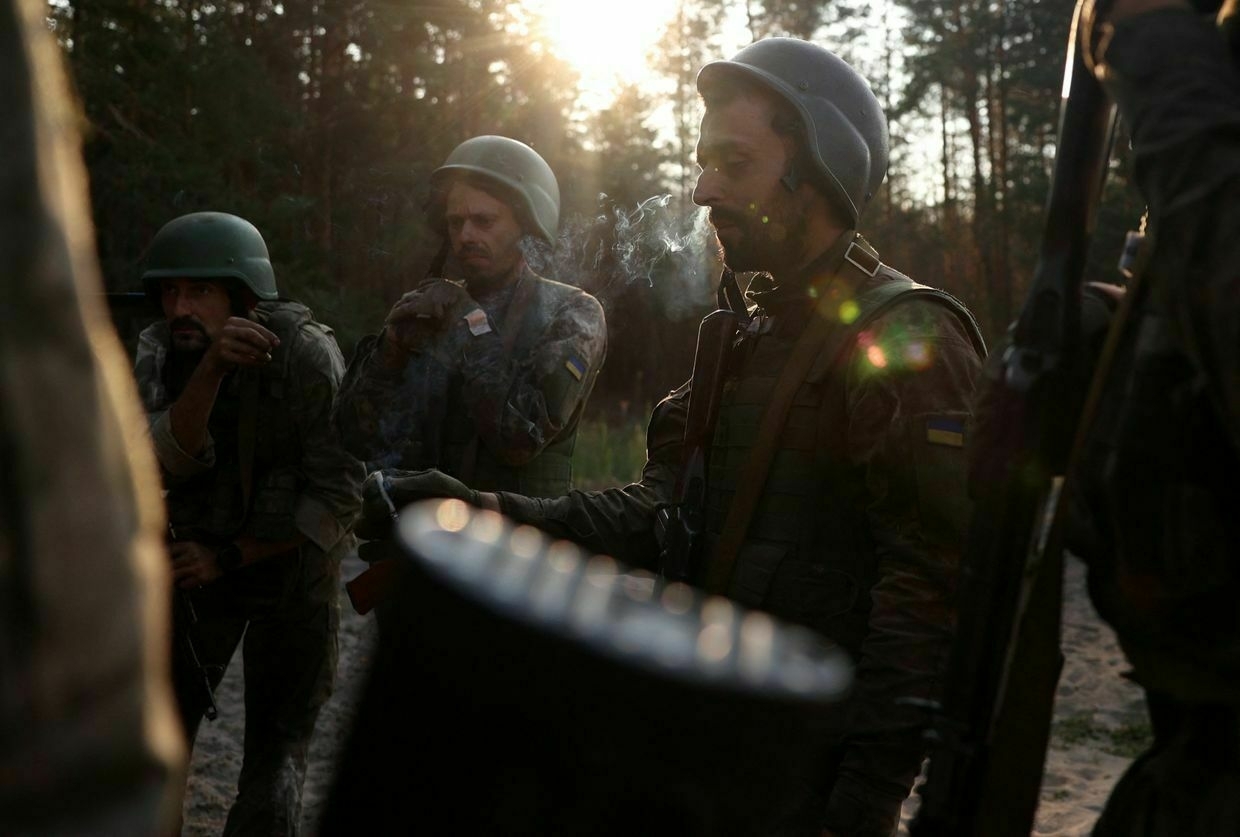
-
Potential Trump-Putin deal on Nord Stream 2 raises concerns in Berlin
Reports are surfacing of behind-the-scenes negotiations between the Americans and Russians discussing the potential reactivation of the Nord Stream 2 gas pipeline as part of a ceasefire agreement in Ukraine. Russian Foreign Minister Sergey Lavrov confirmed this development, hinting at an opportunity for American investors to acquire and utilize Nord Stream 2 to send Russian gas, previously purchased, back into Europe.
“A good development, not a bad one,” said one acquaintance, suggesting that cheaper gas could be back on the horizon. The drastic increase in heating costs post the Russian invasion of Ukraine has been a bitter pill for many Germans, viewed as a wartime burden. However, could the recommencement of gas deliveries be a ceasefire dividend?
These developments underline a rapidly shifting geostrategic landscape. Back in 2019, then-President Donald Trump imposed sanctions on Germany over Nord Stream 2, but now he seeks its operation.
In Berlin, tensions are high, communication channels are buzzing, with support found even within the conservative CDU/CSU bloc. Post-war discussions of Russian gas reemerge, positioning Russia as a key supplier once again.
Saxony’s Prime Minister Michael Kretschmer of the CDU goes a step further, criticising strict sanctions on Russia as outdated. Defense expert Roderich Kiesewetter, however, opposes this view, pushing to exclude pro-Russia tendencies from coalition agreements. Key figures like Friedrich Merz and Lars Klingbeil continue to debate this issue.
Meanwhile, Germany's Greens voice concerns over a “new connection to Moscow” forming in Berlin. Yet, former Chancellor Olaf Scholz’s spokesperson reassured the nation of Germany's strategic commitment to independence from Russian gas.
Two scenarios potentially threaten this stance: Firstly, an agreement between Trump and Putin that excludes Berlin’s input could corner Germany into unwilling cooperation.
Secondly, the far-right AfD could push for pipeline reactivation, challenging future Chancellor Friedrich Merz to respond.
Movement abounds, with outcomes unclear. With Trump's focus on concluding the Ukraine conflict potentially leading to Putin-driven economic compromises, the art of diplomacy is at the fore. Despite Putin's steadfast strategic goals, expected pressure on Trump remains high.
Tension heightened between the U.S. and Russia recently when Trump responded heatedly to Putin's call for temporary UN governance in Ukraine and swift elections. His anger hinted at possible new sanctions against Russia, while Trump looks to smooth relations, with another call planned soon.
-
Kremlin says it remains open to US talks despite Trump's reported anger at Putin
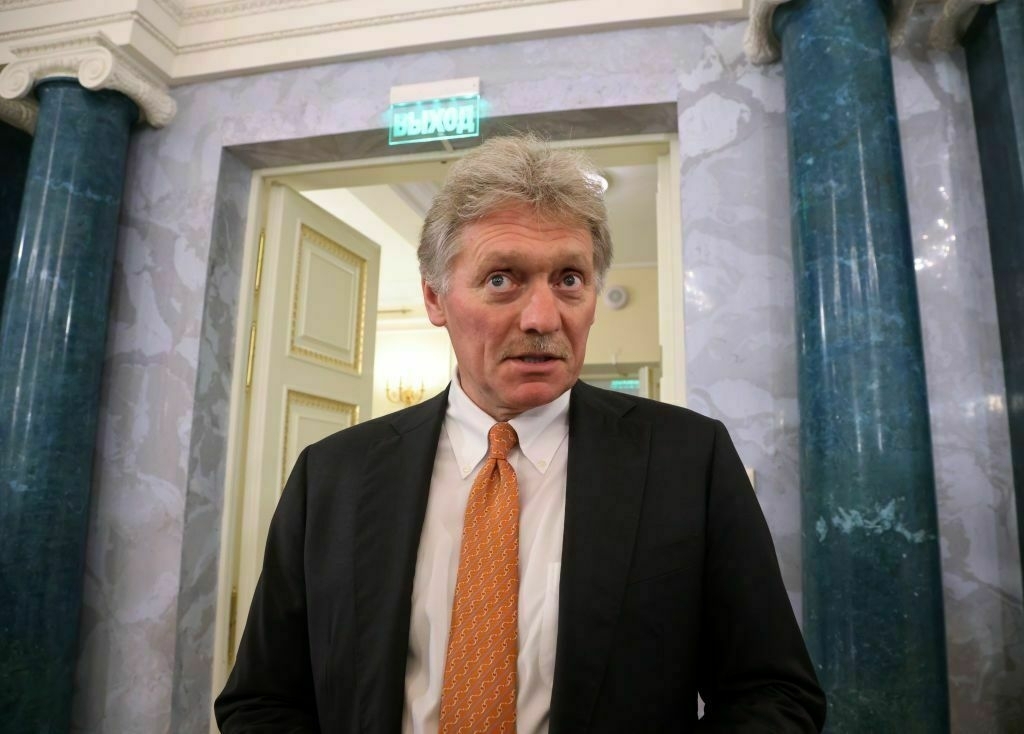
The Kremlin remains willing to engage with the U.S. despite reports that President Donald Trump is “very angry” over Russian President Vladimir Putin’s latest remarks on Ukraine, Kremlin spokesperson Dmitry Peskov said on March 31.
The statement follows reports that Trump was “pissed off” over Putin’s fixation on President Volodymyr Zelensky’s legitimacy, NBC News reported on March 30.
In a call with NBC journalist Kristen Welker, Trump said that Putin’s latest demand for a transitional government in Ukraine to replace Zelensky suggests that peace talks are “not going in the right location."
Peskov downplayed the reports, claiming Trump’s comments were paraphrased rather than direct quotes. He also reiterated that Putin remains open to dialogue with Washington.
“We are working on implementing some ideas related to the Ukrainian settlement. This work is underway. So far, there are no specifics that we could and should have informed you about,” Peskov added, as pro-government outlet Interfax reported.
Moscow rejected a full 30-day truce agreed upon by the U.S. and Ukraine in Jeddah on March 11, demanding conditions that would weaken Kyiv’s defenses, such as a halt to foreign military aid.
Although Washington mediated a partial ceasefire in March, Russia targeted energy infrastructure in Kherson on March 27, despite earlier claims that it was adhering to a moratorium on such strikes since March 18.
Trump has floated measures such as additional sanctions and tariffs on Russian oil but has yet to take concrete steps to pressure Moscow.
Instead, the U.S. president has largely focused his leverage on Ukraine and Zelensky, already cutting off U.S. military aid and intelligence sharing once.
-
Moldova expels 3 Russian diplomats for aiding fugitive MP's escape to Transnistria
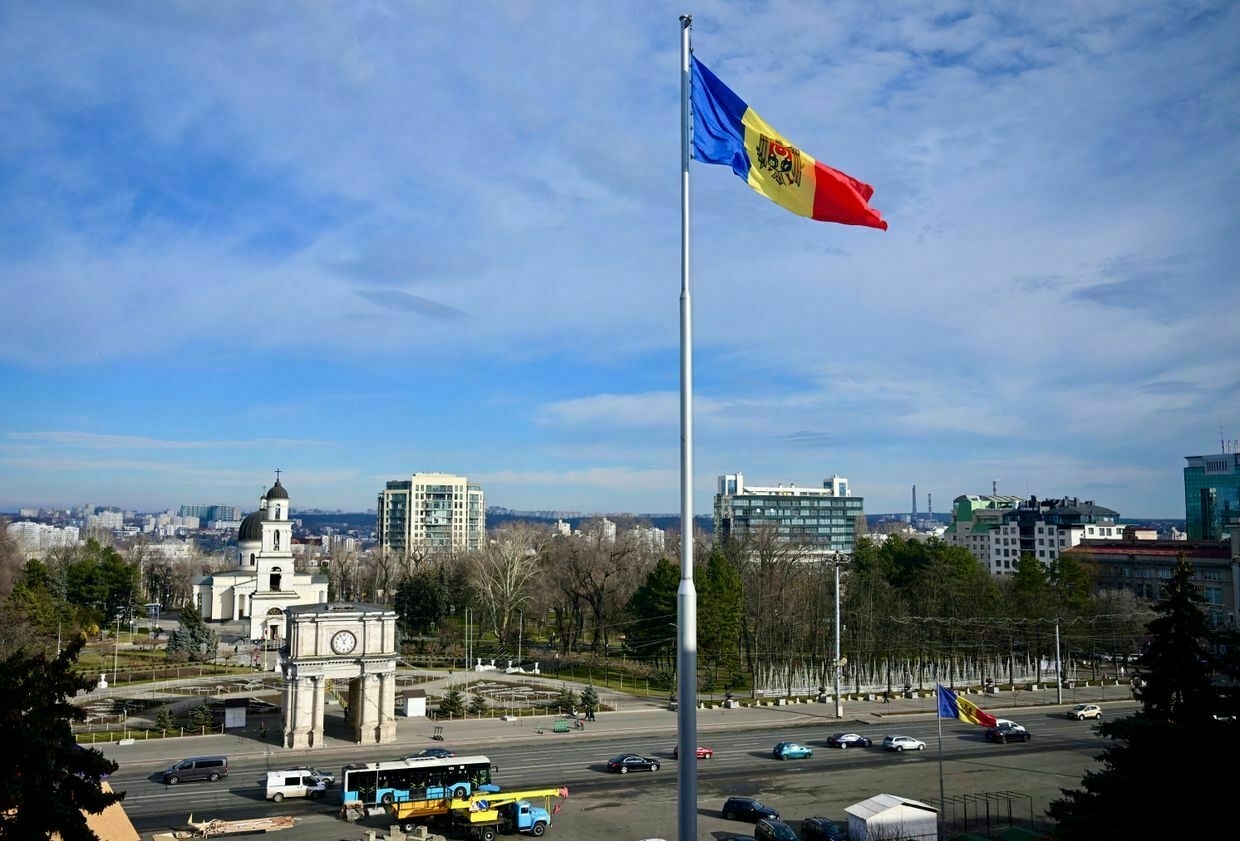
Moldova expelled three Russian embassy employees on March 31, citing activities contrary to diplomatic status, the country’s Foreign Ministry announced.
The move follows reports that Moldovan lawmaker Alexandr Nesterovschi, sentenced to 12 years in prison for illegally financing the banned pro-Russian Shor Party, escaped to Russian-controlled Transnistria with help from Russian diplomats, according to Moldovan media Newsmaker.
Transnistria is a Russian-occupied breakaway region of Moldova that Moscow invaded in the early 1990s under the pretext of protecting the Russian population.
The Moldovan Information and Security Service confirmed that Nesterovschi, convicted on March 19 for corruption, fled to Transnistria with Moscow’s assistance.
The Foreign Ministry summoned Russian Ambassador Oleg Ozerov and delivered a formal expulsion notice for three embassy employees. Russian state media TASS quoted Ozerov dismissing the accusations as “groundless and unsubstantiated."
The pro-Russian Shor Party, led by fugitive oligarch Ilan Shor, has been accused of spreading Kremlin-backed narratives and attempting to destabilize Moldova through protests against its pro-European government.
In a related case, Evghenia Gutul, governor of Moldova’s Gagauzia region and a key Shor Party figure, was detained at Chisinau Airport on March 25 while attempting to leave the country.
Moldova’s Anti-Corruption Prosecutor’s Office alleges she funneled Russian funds into the country while serving as the party’s secretary. Gutul, elected in July 2023, has maintained ties with Moscow, meeting Russian President Vladimir Putin during a visit to Russia in March 2024.
Chisinau has actively countered Russian influence, expelling dozens of Russian diplomats and embassy staff in July 2023 over espionage concerns.
Tensions escalated further after Chisinau said that Russian drones repeatedly violated Moldovan airspace during attacks on Ukraine, with some of the drones crashing on Moldovan territory.
-
Alexander Vindman: Trump repeats past US mistakes with Russia
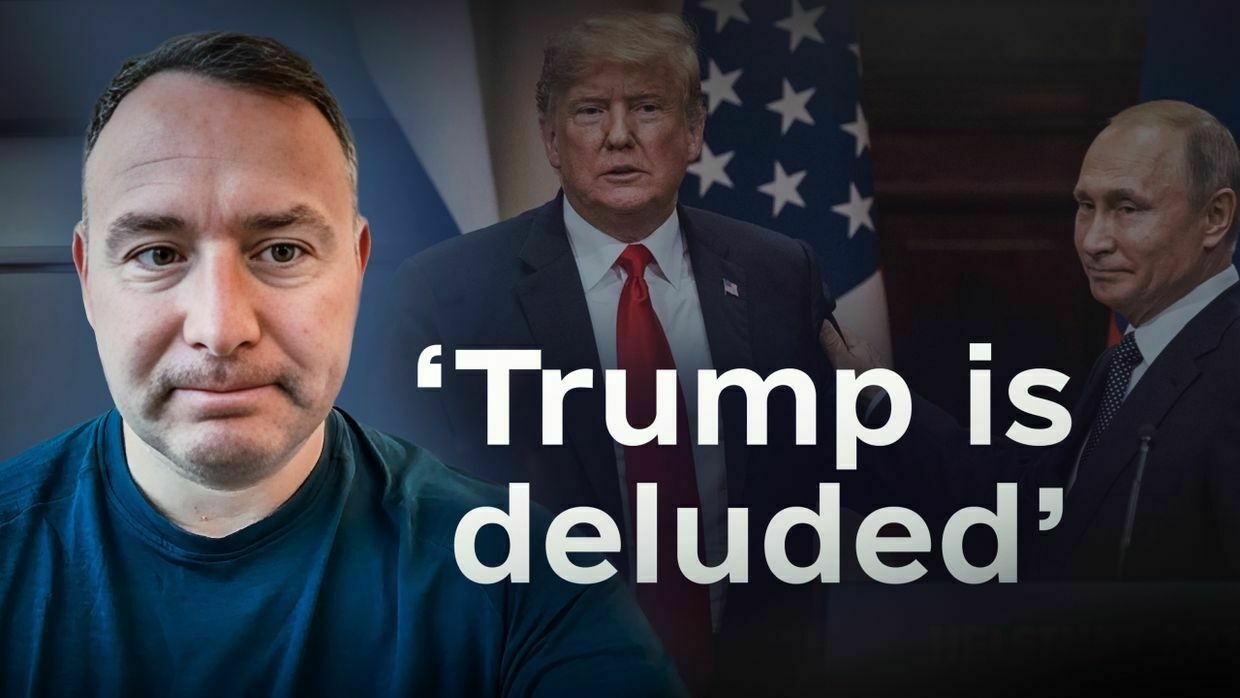
Alexander Vindman served as the director of European affairs for the United States National Security Council in 2018-2020, during U.S. President Donald Trump’s first administration. The Kyiv Independent’s Kate Tsurkan sits down with Vindman to discuss how Washington has historically misjudged Russia, “succumbing to hopes and fears,” and why there is no real prospect of peace between Ukraine and Russia now.
-
Russia again focusing on Pokrovsk sector, yet 'stalling,' Syrskyi says
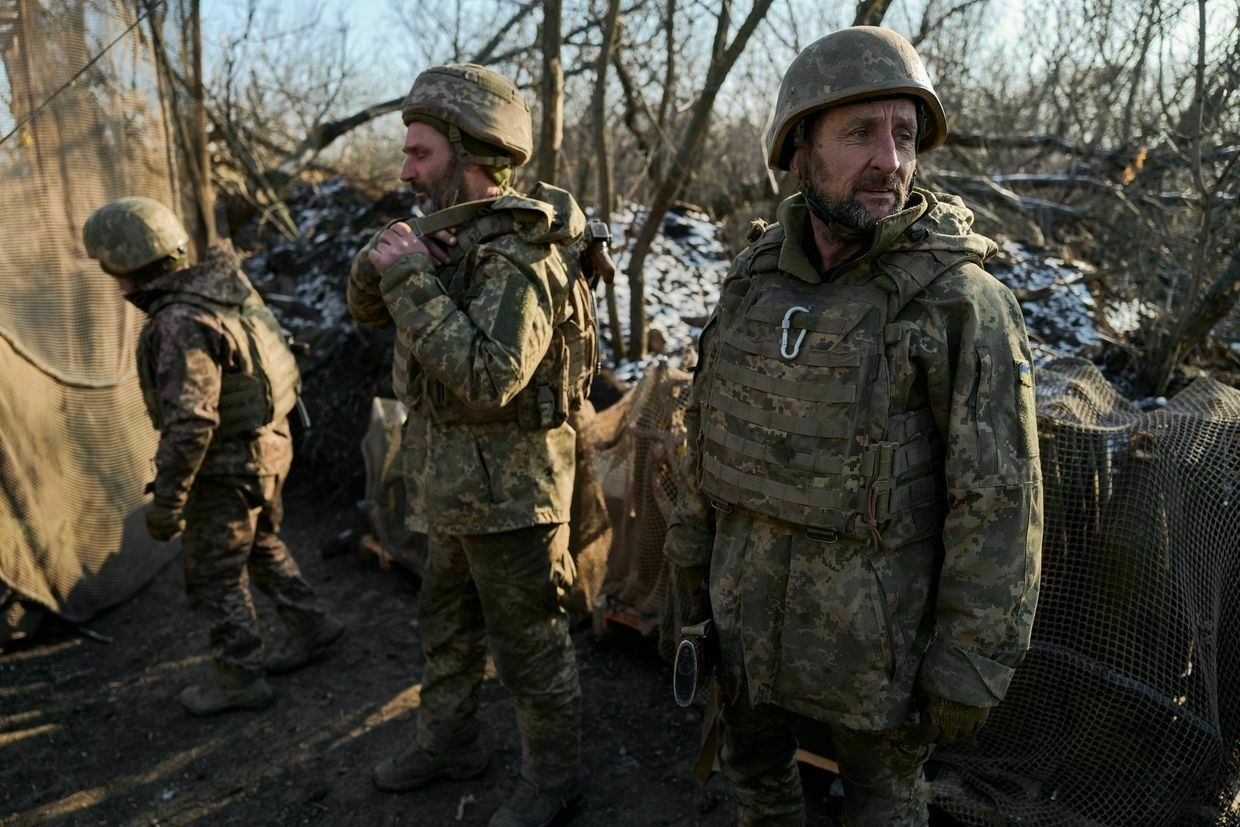
Russia is concentrating its main offensive efforts on the Pokrovsk sector in Donetsk Oblast but is “stalling” and failing to advance, Commander-in-Chief Oleksandr Syrskyi said on March 31.
Pokrovsk, situated about 70 kilometers northwest of Donetsk, remains one of the most hotly contested areas of the front. Syrskyi previously claimed that 7,000 Russian soldiers were killed near the town in January alone.
In February, the situation near Pokrovsk somewhat stabilized, with the Ukrainian military saying that Russian troops were “bogged down” near the city.
The commander-in-chief said Ukraine’s main tasks are holding defensive lines and stabilizing threats, which have been partially achieved, particularly in the Pokrovsk direction.
“At the same time, our troops use active defense tactics wherever possible. In some areas of the front line, they are advancing, improving the tactical situation, restoring dozens of positions, and restraining significant enemy forces,” Syrskyi posted on Facebook.
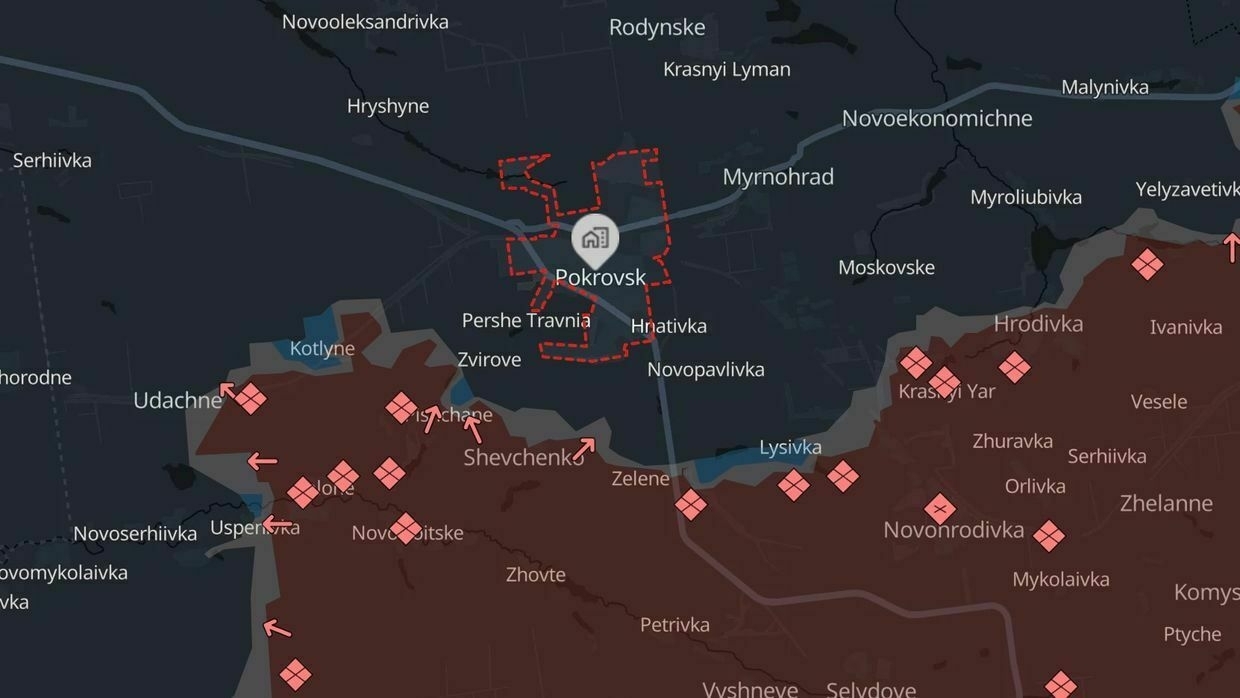
The estimated Russian advance in the Pokrovsk sector in Donetsk Oblast, Ukraine, as of March 31, 2025, according to DeepState map. A white symbol marks Pokrovsk. (DeepState / OpenStreetMaps) President Volodymyr Zelensky previously warned of renewed Russian offensives across the front, including in Kharkiv, Sumy, and Zaporizhzhia oblasts.
In March, Russia made major advances in its Kursk Oblast, a territory that Ukrainian forces took in August that Zelensky’s administration had hoped to use as leverage in negotiations.
Capturing more Ukrainian territory would likely encourage Russian President Vladimir Putin to seek even harsher conditions in a potential peace deal that the U.S. seeks to mediate.
‘A very bloody war’ — What is the death toll of Russia’s war in Ukraine?After holding a phone call with his Russian counterpart Vladimir Putin, U.S. President Donald Trump claimed on Feb. 12 that “millions” of lives had been lost in Ukraine due to the “very bloody war.” It was not the first time Trump claimed that such numbers of people had beenThe Kyiv IndependentElsa Court
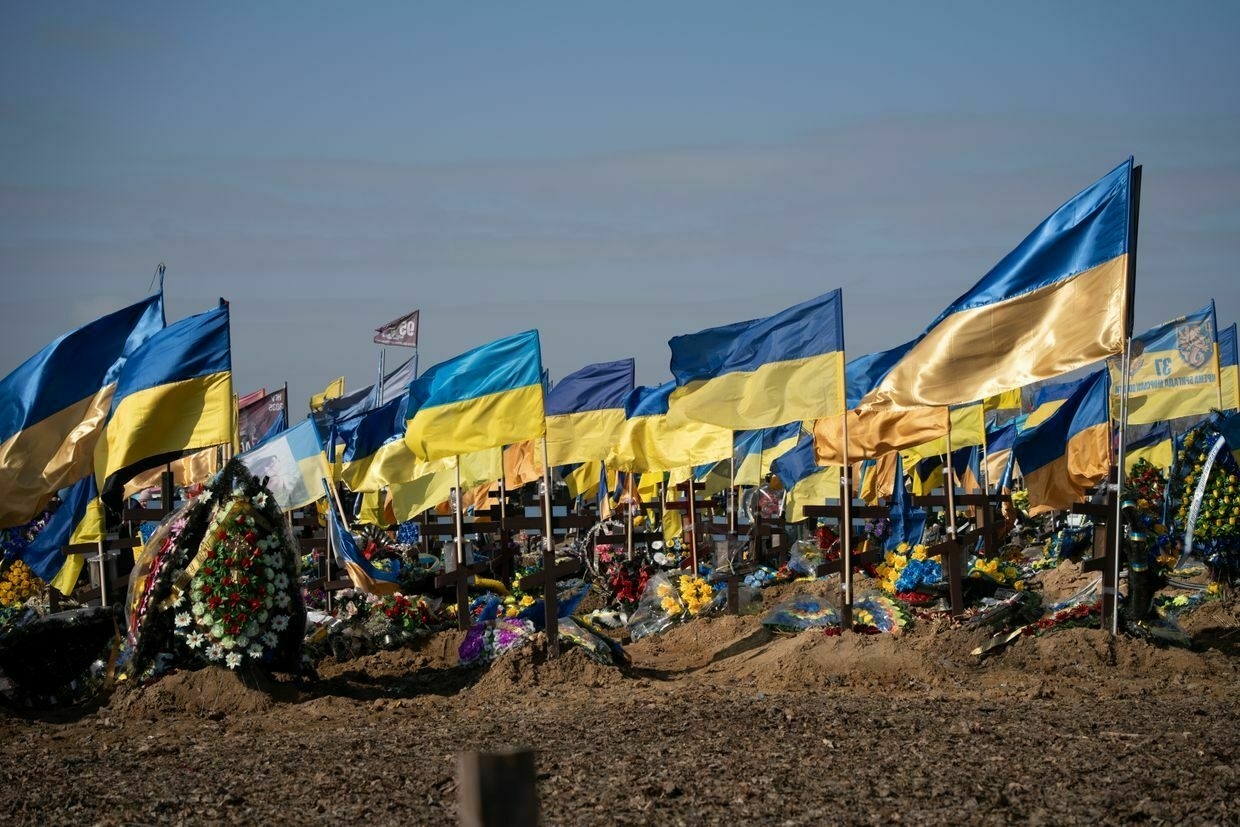
-
SBU detains group suspected of directing Russian missile attacks on Kyiv
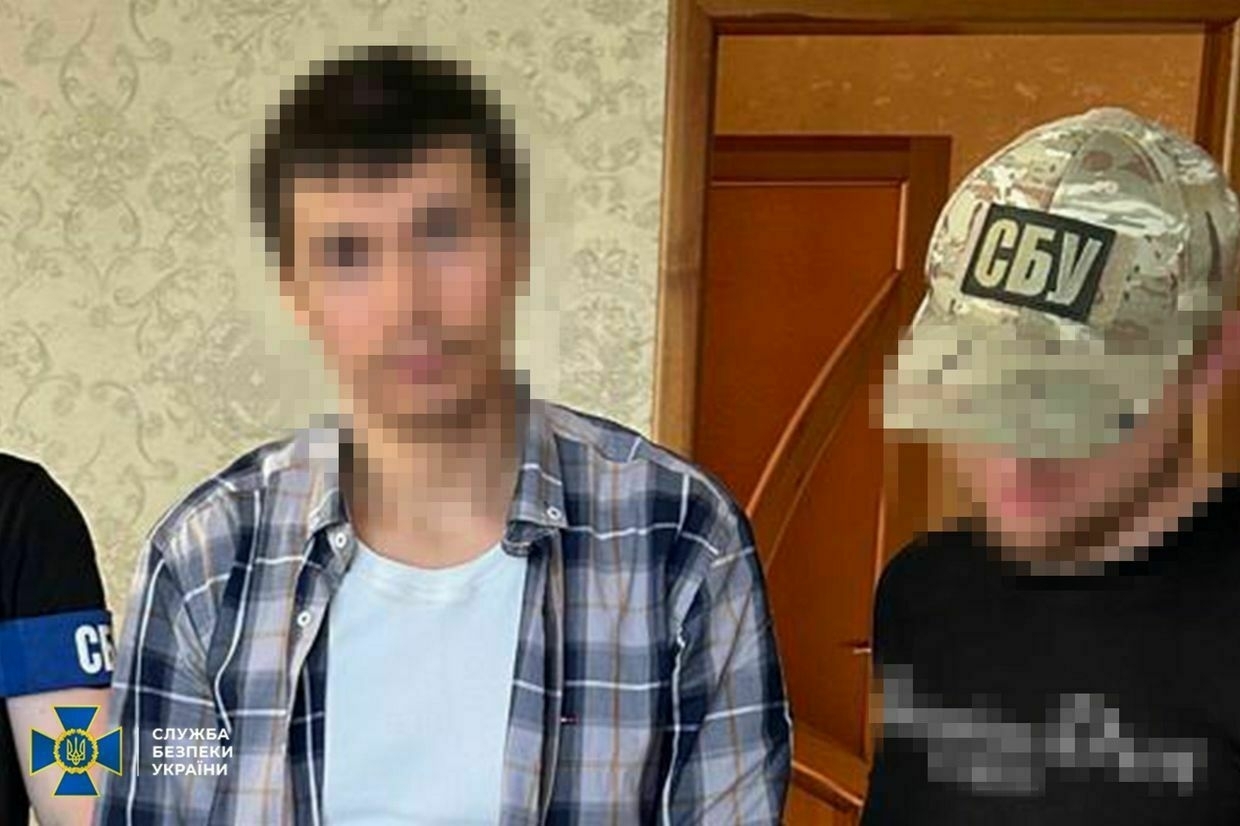
The Security Service of Ukraine (SBU) detained a group suspected of working with Russian military intelligence (GRU) to help target Russian missile strikes on Kyiv, it announced on March 31.
Three men were detained, including one Russian citizen, the SBU said in a statement. It claims they targeted defense factories, Ukrainian Defense Forces weapons systems, and ammunition depots.
The Russian citizen is alleged to have set up an observation post on the rooftop of a high-rise building, which was used to adjust the fire of Russian strikes. According to the SBU, he had been living in Ukraine in “standby mode” until being activated by Russian security services.
The other two defendants are current and former employees of Ukrainian defense companies. One is alleged to have collected intelligence on the consequences of Russian missile strikes on factories and repair facilities, while the other allegedly sought information from his former colleagues about potential target locations.
According to the investigation, the suspects acted separately but had the same supervisor, a GRU member, who has already been identified by the SBU.
Their computer hardware, a quadcopter, and mobile phones which reportedly contained incriminating messages with Russian security services, were seized.
The suspects have been charged under part 2 of Art. 111 (treason committed under martial law), part 3 of Art. 114-2 (unauthorized dissemination of information about the movement or deployment of the Armed Forces of Ukraine or other military formations established under the laws of Ukraine, committed under martial law), parts 1 and 3 of Art. 436-2 (justification, recognition as lawful, denial of the armed aggression of the Russian Federation against Ukraine, and glorification of its participants) of the Criminal Code of Ukraine.
Russia continues to attack Ukrainian cities despite partial ceasefire agreements regarding energy infrastructure and the use of force in the Black Sea.
Ukraine agreed to a U.S.-proposed full 30-day ceasefire, saying on March 11 that Kyiv is ready if Russia also agrees to the terms. So far, Moscow has refused.
‘A very bloody war’ — What is the death toll of Russia’s war in Ukraine?After holding a phone call with his Russian counterpart Vladimir Putin, U.S. President Donald Trump claimed on Feb. 12 that “millions” of lives had been lost in Ukraine due to the “very bloody war.” It was not the first time Trump claimed that such numbers of people had beenThe Kyiv IndependentElsa Court
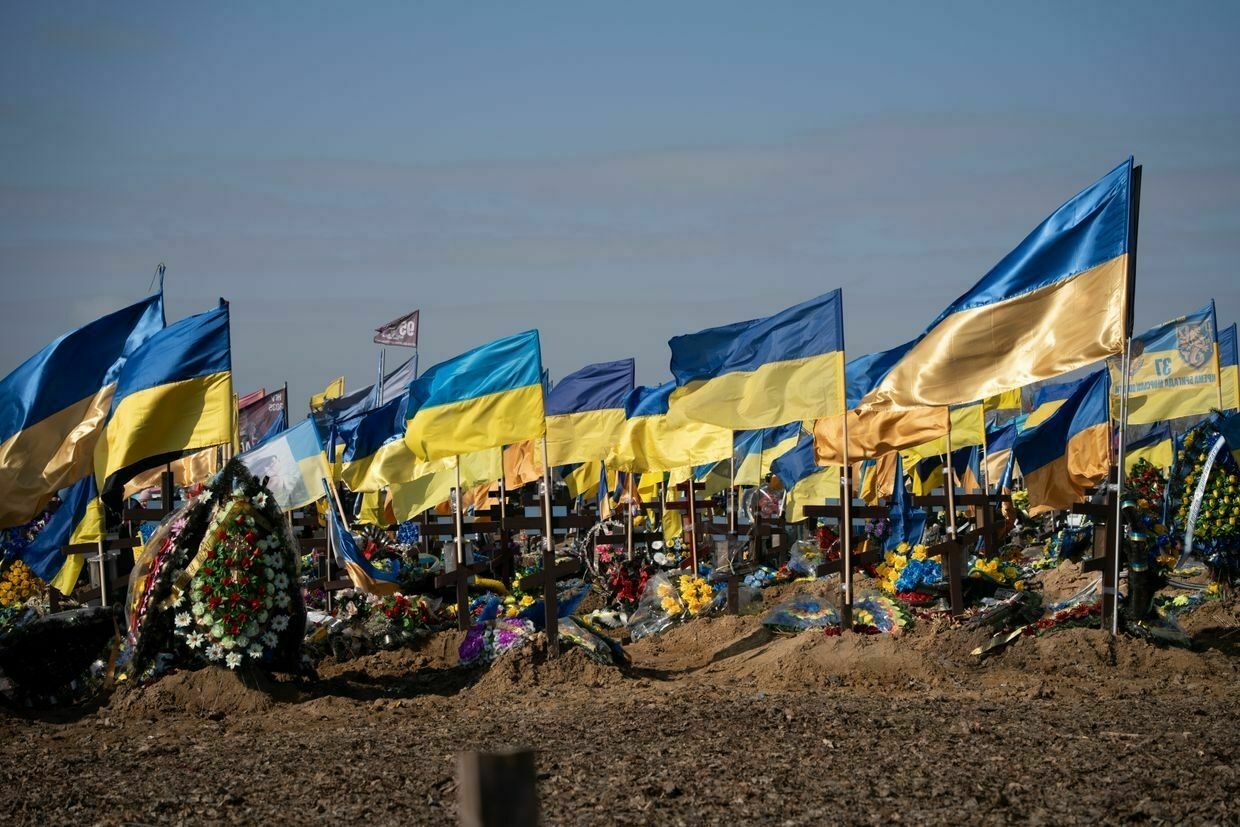
-
Ukraine-US talks on minerals deal ongoing, not tied to NATO membership, source says
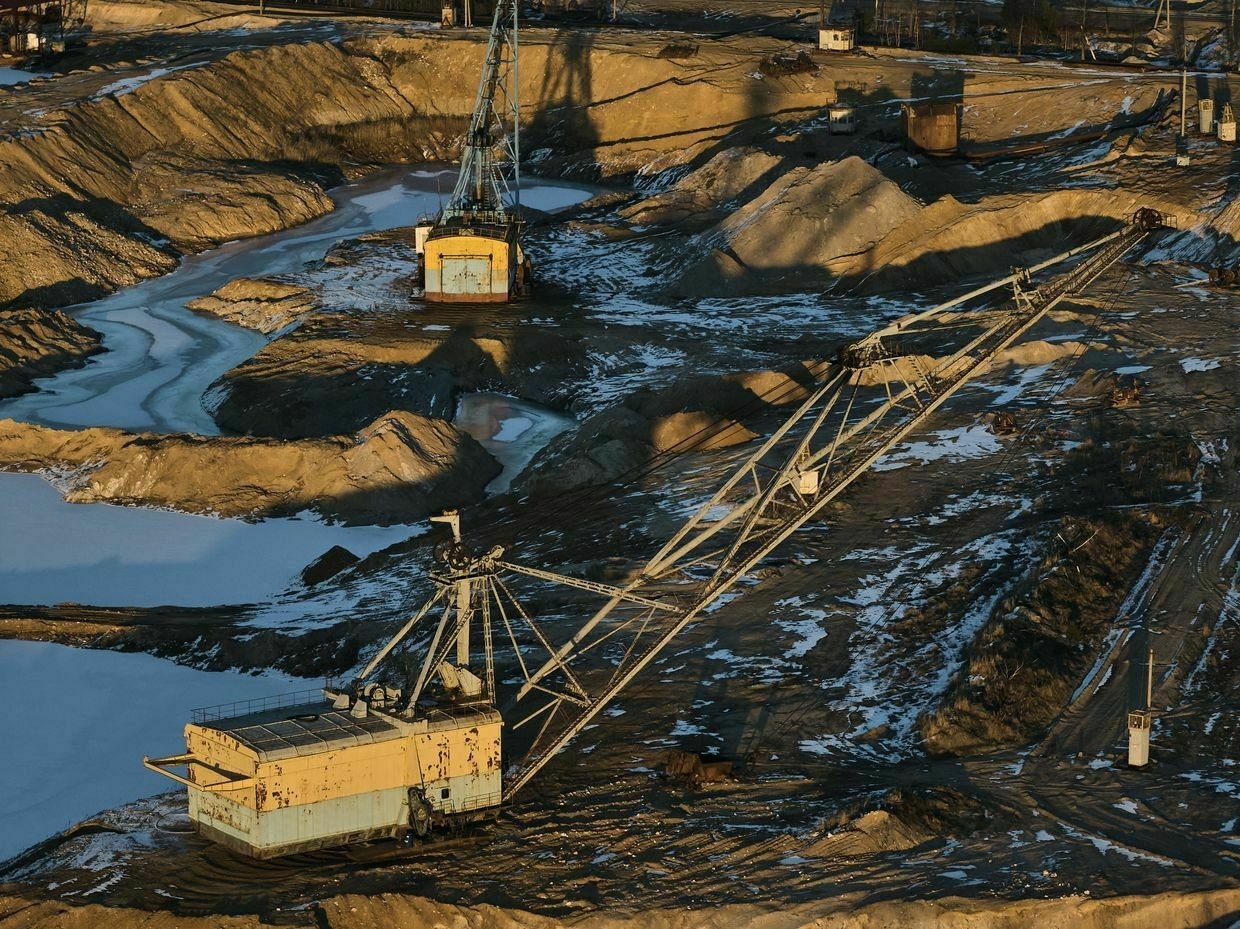
Ukrainian and U.S. government and legal teams continue discussions on the mineral deal, a source in the Presidential Office told the Kyiv Independent on March 31 as U.S. President Donald Trump is escalating his rhetoric on the agreement.
“On Friday (March 28), we spoke with the American side; now we (Ukraine) will discuss it, then (the parties) will talk again,” the source said.
The comments came after Trump said on March 30 that he believed President Volodymyr Zelensky wanted to back out of the agreement and warned that his refusal would have consequences.
Speaking to reporters aboard Air Force One, Trump followed up his comments about the mineral deal by saying that Ukraine continues to hold NATO aspirations, which he presented as hopeless.
“He (Zelensky) wants to be a member of NATO, but he’s never going to be a member of NATO. He understands that,” Trump said.
According to the Kyiv Independent’s source, Ukraine’s NATO membership is not a part of the minerals deal.
“We are not tying (the minerals deal to NATO), it’s a misunderstanding,” they said.

A map showing the location of critical raw materials in Ukraine. (The Kyiv Independent) The Financial Times reported on March 27 that the latest version of the agreement proposed by the U.S. includes terms that would grant Washington unprecedented control over Ukraine’s natural resources through a joint investment fund.
Ukrainian online newspaper European Pravda also wrote that the deal may contradict Ukraine’s EU accession due to severe restrictions affecting Ukraine’s economic sovereignty.
Following the news, Zelensky said that Kyiv would not sign the deal if it threatened the country’s EU membership and reiterated that he does not consider Washington’s aid to Kyiv a debt.
Bloomberg reported on March 29 that Kyiv was requesting changes to the current proposal, including greater investment from the U.S. and more clarity on how the joint fund would operate.
The Trump administration has touted the minerals deal as an essential part of Ukraine’s path to peace but has failed to offer concrete security guarantees in exchange for broad access to resources.
Kyiv and Washington were set to sign an earlier version of the agreement on Feb. 28, but the plan fell apart after a heated Oval Office dispute between Zelensky, Trump, and Vice President JD Vance.
The White House has described the minerals deal as a mechanism for the U.S. to “recoup” some of the financial aid it has provided to Ukraine since the start of Russia’s full-scale invasion.
US, Russia begin talks on rare earth minerals projects, Moscow claims“Rare earth metals are an important area for cooperation, and, of course, we have begun discussions about various rare earth metals and projects in Russia,” said Kirill Dmitriev, head of the Russian Direct Investment Fund.The Kyiv IndependentMartin Fornusek
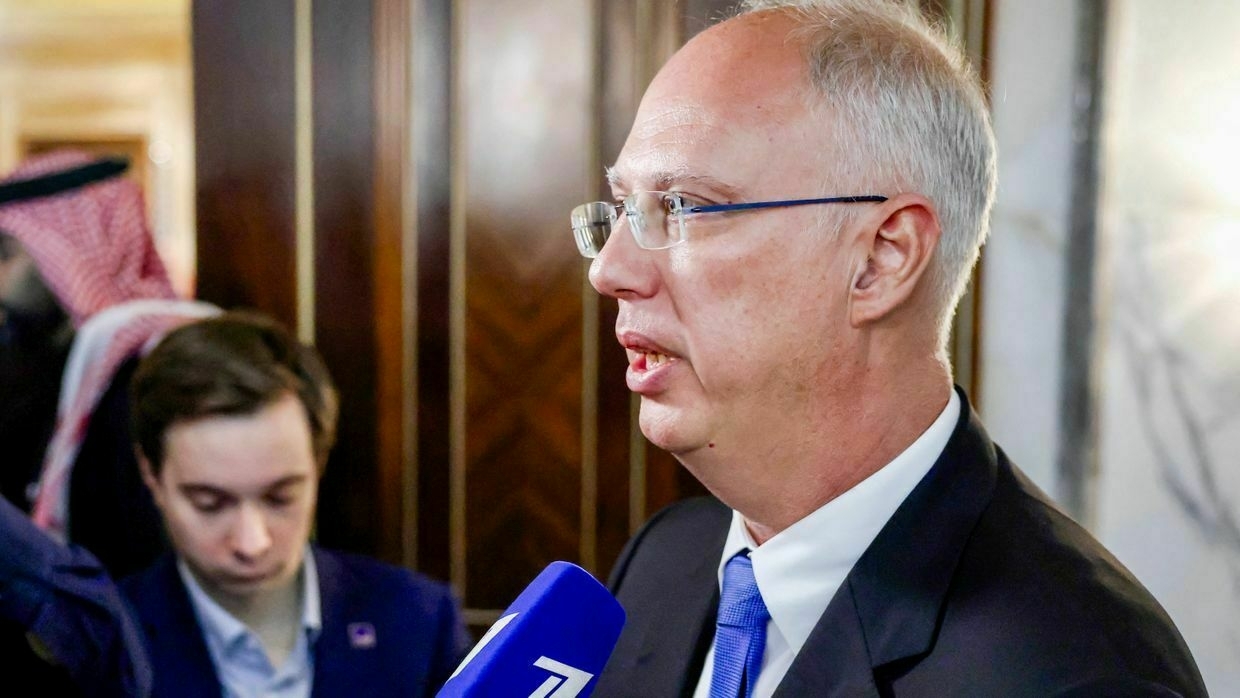
-
Sweden unveils its largest military aid package for Ukraine worth nearly $1.6 billion
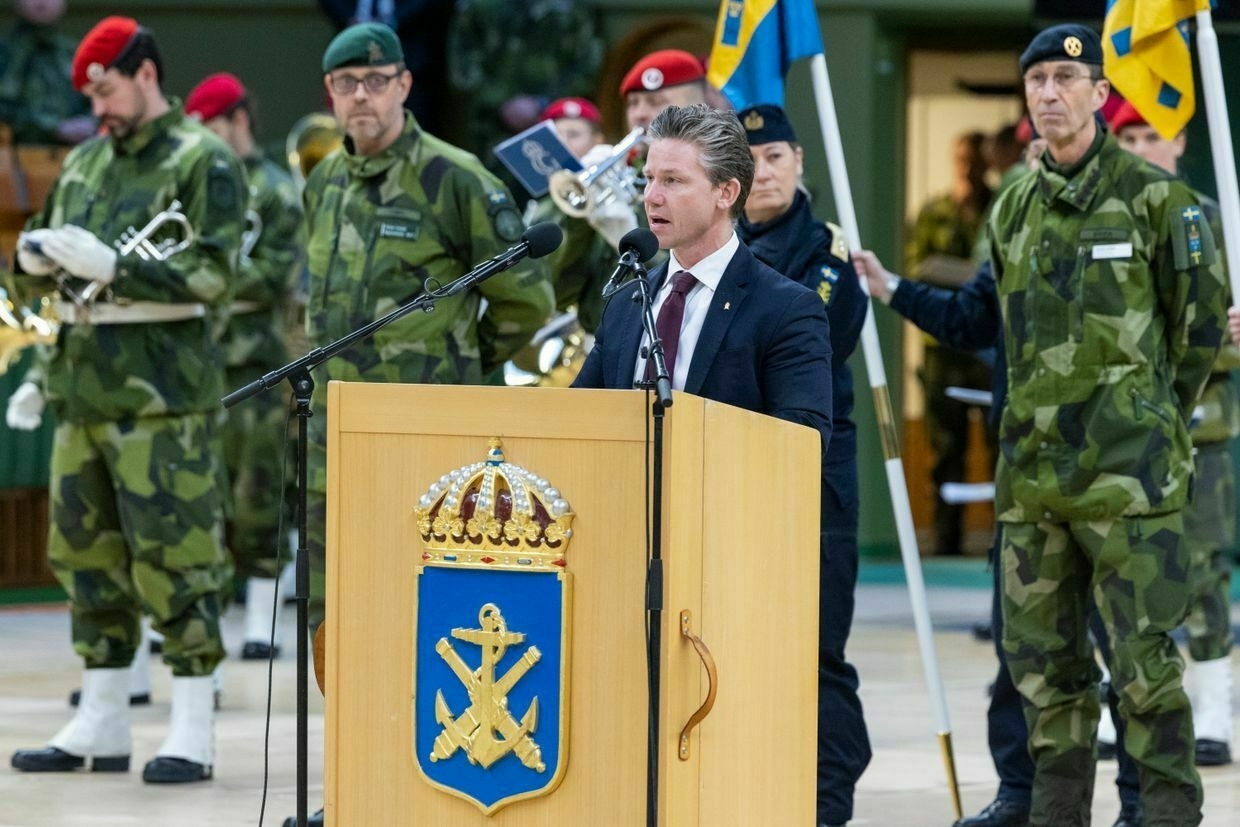
Sweden will provide Ukraine with a military aid package worth almost $1.6 billion, Swedish Defense Minister Pal Jonson announced on March 31.
The latest package is Sweden’s largest tranche of military assistance since the beginning of Russia’s full-scale invasion in 2022, according to Jonson.
“The package includes, among other things, support for Ukraine’s air defense, artillery, satellite communications, and maritime capacity,” the minister said on X.
With this package, Sweden’s support to Ukraine since 2022 amounts to 80 billion Swedish kronor ($8 billion), the country’s government said. This assistance has included Archer self-propelled howitzers, Strv 122 tanks, and CV90 infantry fighting vehicles.
The latest package includes $912 million worth of equipment that will be procured from the Swedish defense industry and delivered to Ukraine in the span of “about 0-24 months."
It also encompasses a $465 million donation to international multilateral initiatives, the Ukraine Defense Contact Group, and purchases from the Ukrainian defense industry.
Kyiv will further receive material and spare parts from the Swedish Armed Forces worth about $93 million, including m/58 machine guns, ammunition, roughly 100 vehicles of various types for air base maintenance, and other support.
Stockholm is also allocating $46 million for an export guarantee to supplement procurement for donations to Ukraine, ensuring more Swedish companies can support Kyiv by providing requested material.
Finally, the Swedish Defense Materiel Administration, a state military procurement agency, “will also be tasked with identifying, testing and funding military solutions from small tech companies that need to be verified or scaled up for military purposes in Ukraine,” Jonson said.
The package comes as European countries seek to bolster support for Ukraine as future backing from the U.S., the leading military donor, grows increasingly uncertain under President Donald Trump.
Ukraine war latest: Putin will have nothing to say at peace negotiations, Zelensky saysKey developments on March 29-30: * Putin will have nothing to say at peace negotiations, Zelensky says. * Russia preparing new offensive in ‘coming weeks’ to strengthen negotiating position, AP reports. * Russian negotiator suggests ceasefire may not be reached in 2025. * Trump says he’s ’pisse…The Kyiv IndependentThe Kyiv Independent news desk
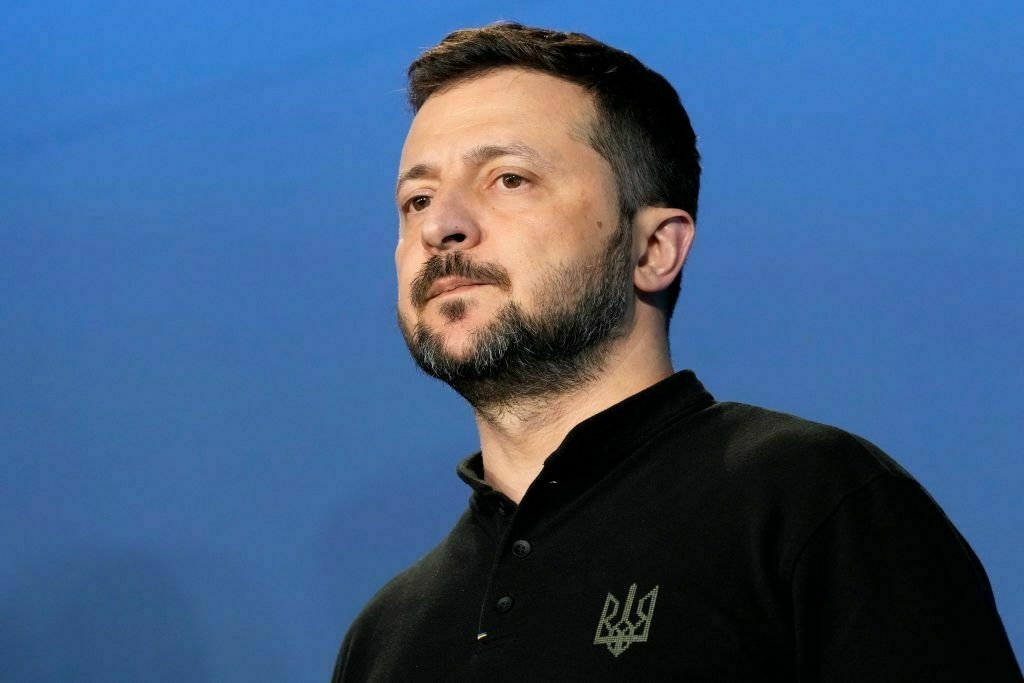
-
Kyiv hosting parliamentary leaders 'from across Europe'
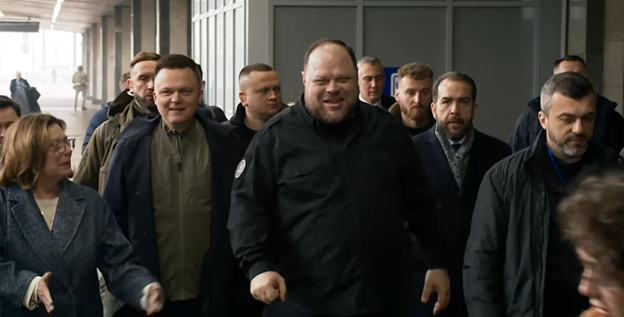
Parliamentary representatives from 17 European countries and the European Parliament arrived in Kyiv on March 31, Verkhovna Rada Speaker Ruslan Stefanchuk announced.
“Today, Kyiv welcomes parliamentary representatives from across Europe,” the speaker of Ukraine’s parliament said on social media.
“Speakers and deputy speakers of the parliaments of Belgium, the United Kingdom, Denmark, Estonia, Iceland, Spain, Latvia, Lithuania, Luxembourg, Norway, Poland, Portugal, Slovenia, Finland, Croatia, Czechia, and Sweden, as well as representatives of the European Parliament, arrived in the capital of Ukraine."
The visit comes on the third anniversary of the liberation of Bucha, a Kyiv Oblast town where Russian forces massacred hundreds of civilians during the occupation in early 2022.
Bucha was liberated after Ukrainian forces repelled Russia at the battle of Kyiv, forcing Moscow’s forces to withdraw and leading to the discovery of the massacres.
“This visit is a strong symbol of support, solidarity, and trust. I am grateful to my colleagues for their readiness to stand by Ukraine,” Stefanchuk said.
Trump’s spiritual adviser visits Bucha, meets Ukraine’s religious leaders“The war in Ukraine is bigger than Democrats or Republicans, the Left or the Right. Whether you dislike President Trump or President (Volodymyr) Zelensky, real people are dying here,” Pastor Mark Burns said.The Kyiv IndependentKateryna Denisova

-
Trump to visit Saudi Arabia in mid-May, Axios reports
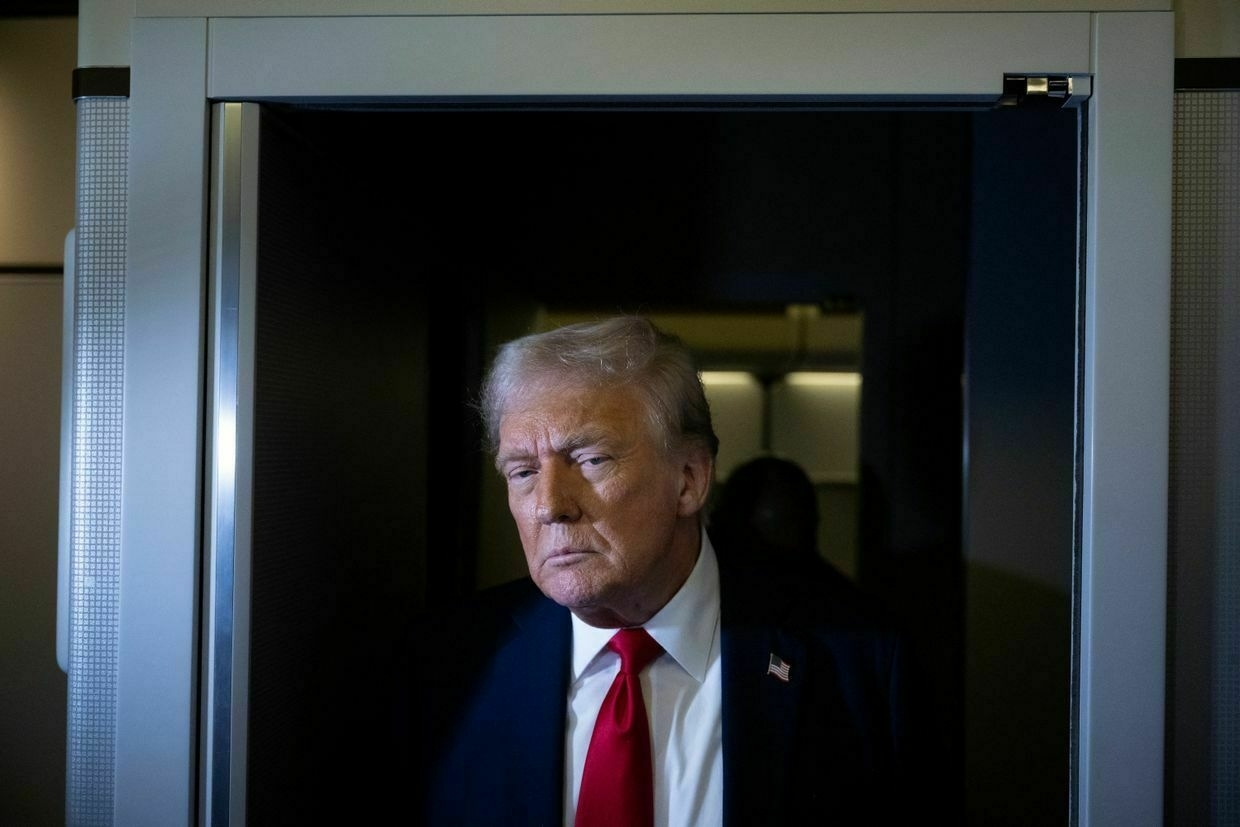
U.S. President Donald Trump is set to visit Saudi Arabia in mid-May for the first foreign trip of his second term, Axios reported on March 30, citing two U.S. officials and a source with knowledge of the president’s travel plans.
The specific plan and official information have not yet been provided, but talks will include “discussing foreign investments, strengthening relationships with Gulf nations and ending conflict in the Middle East,” an official told Axios.
Saudi Arabia has remained an important ally of Trump’s since his first term and the capital of Riyadh has been the primary host of the ongoing peace negotiations between the U.S., Ukraine, and Russia.
Initially considered for April 28, the visit was postponed, an official said.
Earlier this month, Trump said his first trip during his second term would be to Saudi Arabia, as it had agreed to invest $1 trillion in the U.S. economy.
“Last time I went to Saudi Arabia they put up 450 billion dollars. This time, I said I will go if you put up a trillion dollars to American companies. Meaning the purchase over four years of a trillion dollars. They agreed to do that. So I am gonna be going there,” Trump told reporters in the Oval Office on March 6.
Trump’s visit to Saudi Arabia may also involve discussions on the Abraham Accords.
The Abraham Accords, signed in 2020 and negotiated by Trump’s administration, established diplomatic relations between Israel and the United Arab Emirates, Bahrain, Morocco, Sudan, marking a dramatic shift in Middle Eastern geopolitics.
Although the White House has identified Saudi Arabia as a potential participant in the accords, it remains hesitant due to concerns over Israel’s actions in the Israeli-Palestinian war.
Trump says he’s ‘pissed off’ and ‘very angry’ at Putin in phone interview with NBC NewsU.S. President Donald Trump is reportedly “pissed off” and “very angry” regarding Russian President Vladimir Putin’s fixation over President Volodymyr Zelensky, NBC News reported on March 30.The Kyiv IndependentThe Kyiv Independent news desk
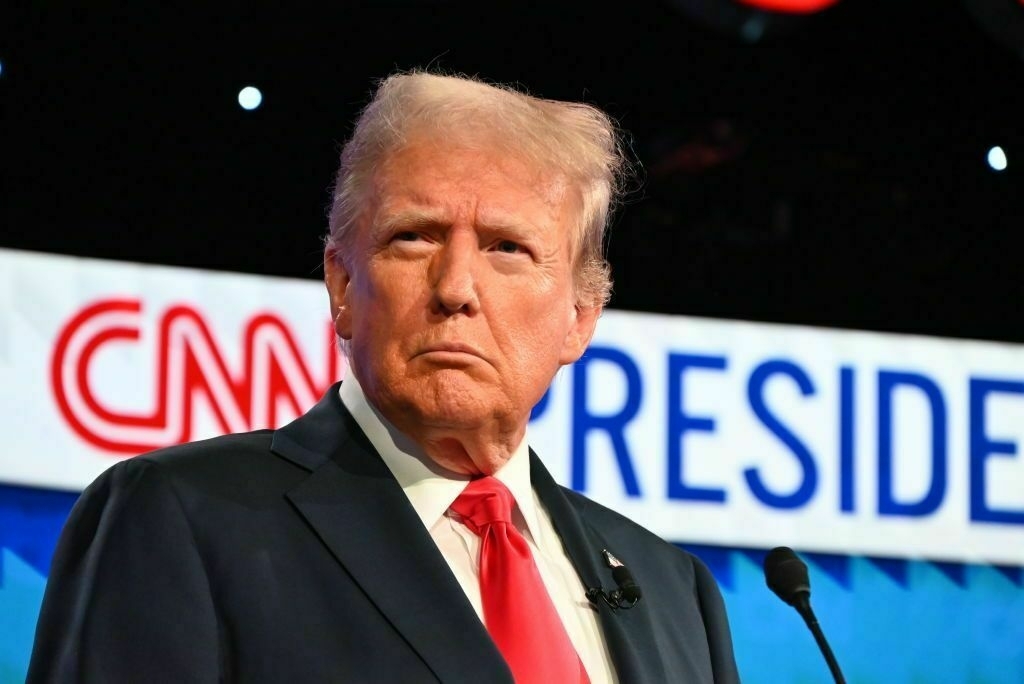
-
Marine Le Pen barred from running for public office after embezzlement verdict
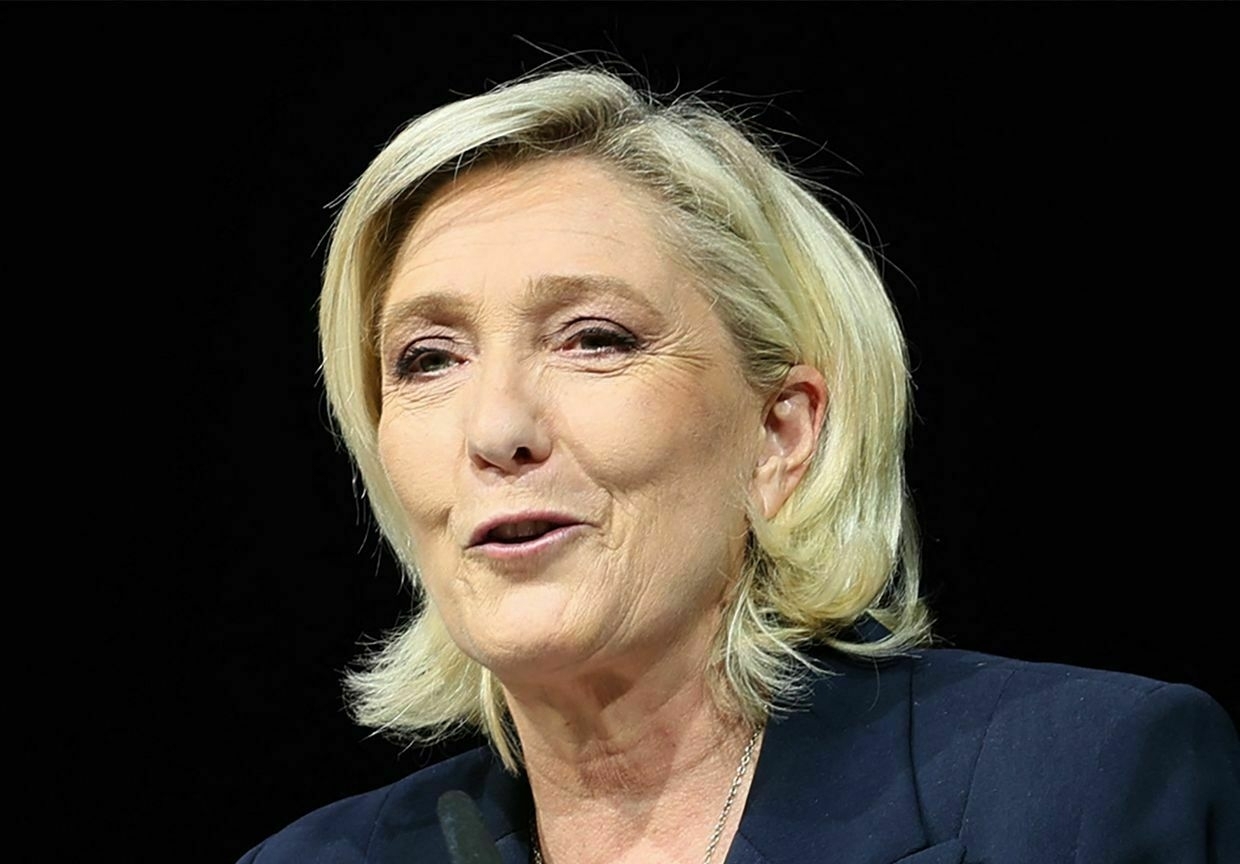
A French court on March 31 found Marine Le Pen, one of the leaders of the far-right National Rally party (RN), guilty of embezzling EU funds and banned her from running for public office “with immediate effect."
Le Pen, eight RN members of the European Parliament, and 12 assistants were found guilty of misusing European Parliament money to pay staff working for the RN between 2004 and 2016, France24 reported. Twenty-four of Le Pen’s party colleagues have been charged in the case.
Though the court did not immediately specify for how long Le Pen cannot run for office, the ruling may dash her hopes of running for president in the 2027 election.
Prosecutors requested a 10-year prison sentence and a ban to run for office for five years, Euronews reported.
Le Pen chairs the RN in the French parliament’s lower house and unsuccessfully ran for the presidency in 2012, 2017, and 2022, ending up in the runoff in the latter two cases but losing to Emmanuel Macron.
“I absolutely don’t feel I have committed the slightest irregularity, the slightest illegal move,” the far-right leader told the court, according to France24. She claimed that prosecutors were “only interested” in thwarting her presidential ambitions.
Before Russia’s all-out invasion of Ukraine in 2022, Le Pen openly expressed her admiration for Russian President Vladimir Putin, said she did not believe Russia’s annexation of Crimea was illegal, and her party took a 9-billion-euro loan from a Russian bank in 2014 despite sanctions.
Le Pen and her party sought to cast away their pro-Kremlin rhetoric after 2022, denouncing Russian aggression and praising Ukrainian defenders. At the same time, Le Pen has opposed more decisive steps in support of Kyiv, such as the supply of SCALP missiles or the deployment of French peacekeepers on the ground.
The RN has gathered broad support over the past few years, becoming the single largest party in the parliament’s lower house and a leading opposition force.
Trump says he’s ‘pissed off’ and ‘very angry’ at Putin in phone interview with NBC NewsU.S. President Donald Trump is reportedly “pissed off” and “very angry” regarding Russian President Vladimir Putin’s fixation over President Volodymyr Zelensky, NBC News reported on March 30.The Kyiv IndependentThe Kyiv Independent news desk
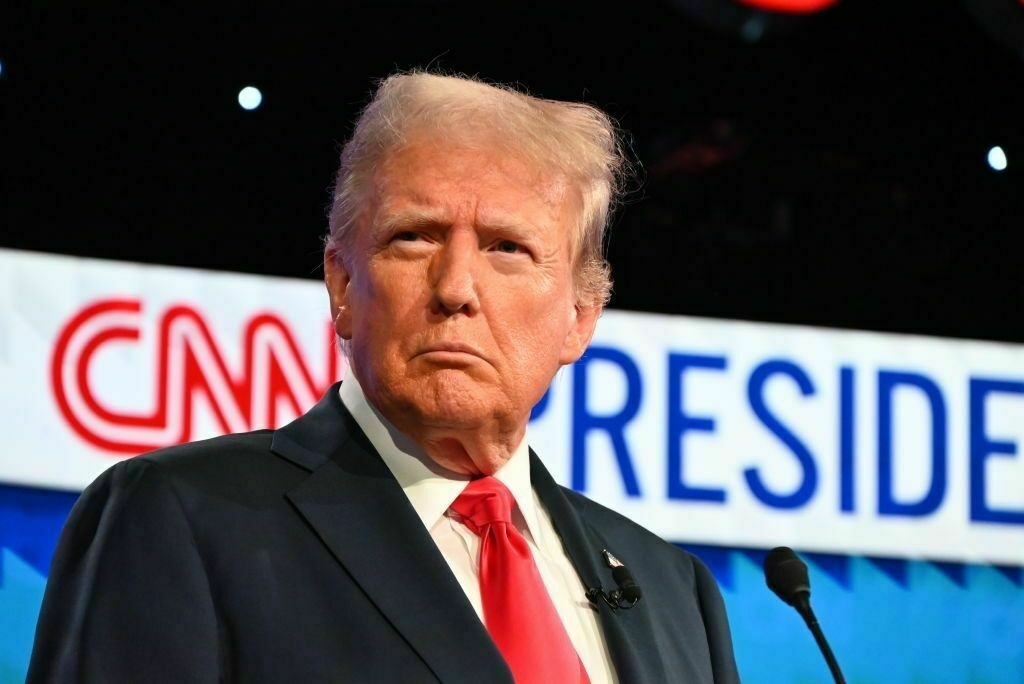
-
Trump's spiritual adviser visits Bucha, meets Ukraine's religious leaders

U.S. President Donald Trump’s spiritual advisor, Pastor Mark Burns, arrived in Ukraine and visited cities in Kyiv Oblast liberated from Russian forces in 2022, Chief Rabbi of Ukraine Moshe Azman said on March 31.
Azman invited Burns to visit Bucha, Borodianka, and Irpin. Three years ago, Russia’s attempts to encircle Kyiv failed after more than a month of heavy fighting, with Moscow’s troops retreating from the capital’s outskirts.
Hundreds of residents of the three towns were found to have been tortured, raped, and executed by the Russian army.
“The war in Ukraine is bigger than Democrats or Republicans, the Left or the Right. Whether you dislike President Trump or President (Volodymyr) Zelensky, real people are dying here," Burns said on X.
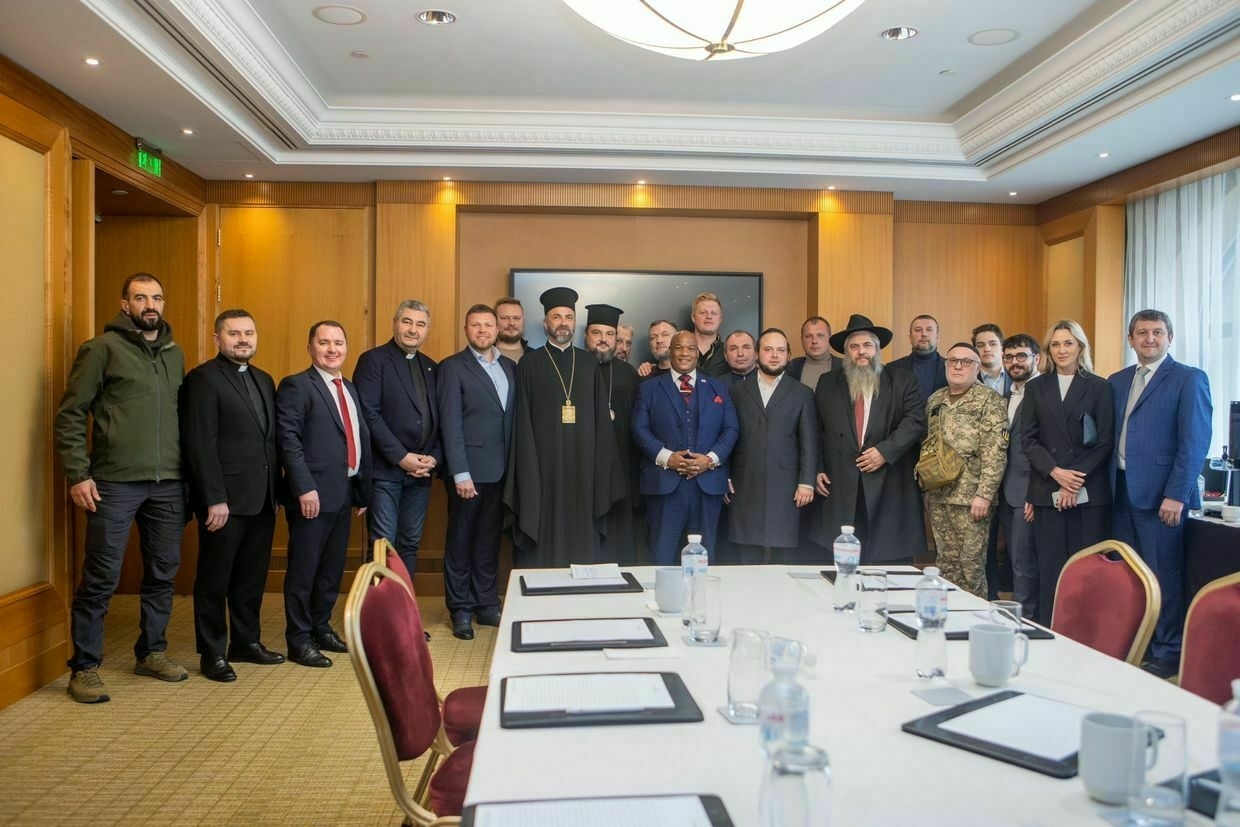
Ukraine’s religious leaders and U.S. Pastor Mark Burns during a meeting on March 30, 2025. (Mark Burns/X) 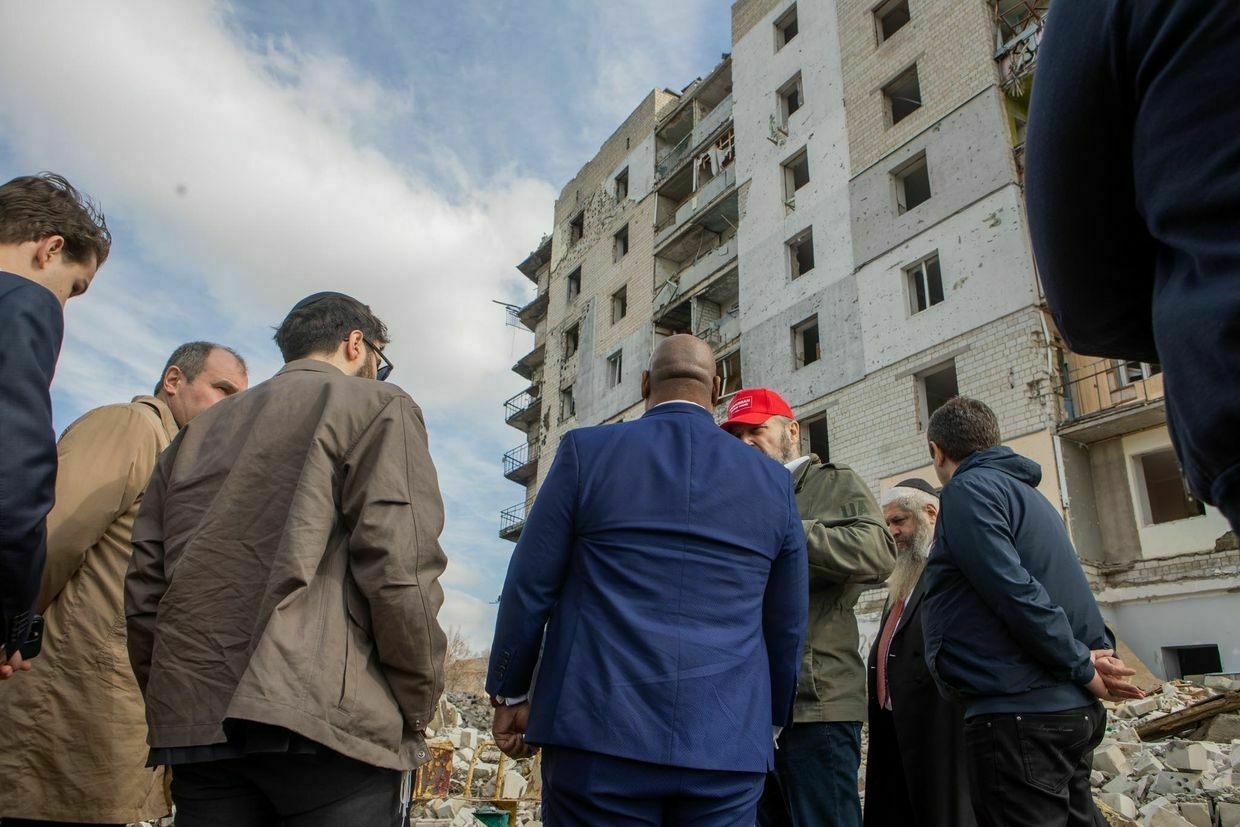
U.S. Pastor Mark Burns arrived in Ukraine and visited cities in Kyiv Oblast liberated from Russian forces three years ago on March 30, 2025. (Chief Rabbi of Ukraine Moshe Azman/Facebook) Reflecting on his trip to Kyiv Oblast, Burns listed Russian war crimes, including deported children and raped women, executions of civilians and destruction of multiple churches.
Ukraine’s top religious leaders also told him about Russia’s systematic religious persecution.
“Yet despite these horrors, Ukraine stands strong as a beacon of religious freedom, welcoming all faiths,” Burns said.
The pastor said that Ukrainian soldiers on the front line “are not asking for money” but for more weapons and fighter jets “to shoot down the drones that still fire at civilian buildings, and killing people."
Ukraine has agreed to a U.S.-proposed full 30-day ceasefire, saying on March 11 that Kyiv is ready to take such a step if Russia also agrees to the terms. So far, Russia has refused, instead attempting to extract major concessions from the U.S. in exchange for partial ceasefire agreements.
Mark Burns is a televangelist and pastor of Harvest Praise & Worship Center in South Carolina. He supported Donald Trump in the 2016 presidential election and was labeled by Time Magazine as “Donald Trump’s Top Pastor."
“Pastor Burns is a man who has the ability to be heard where big decisions are made. And I believe that the voice of truth from Ukraine will be brought to the heart of the new U.S. leadership,” Azman said.
Trump has adopted a more critical stance toward Ukraine than his predecessor, former President Joe Biden. The new administration has temporarily paused military and intelligence support for Kyiv while praising the U.S. president’s supposedly warm relationship with Russian President Vladimir Putin.
There’s ‘psychological deadline’ for Putin to agree to Ukraine ceasefire, Trump says“If I think they’re (Russia) tapping us along, I will not be happy about it,” U.S. President Donald Trump told reporters aboard Air Force One, voicing his belief that the Kremlin’s chief “wants to make a deal.”The Kyiv IndependentMartin Fornusek
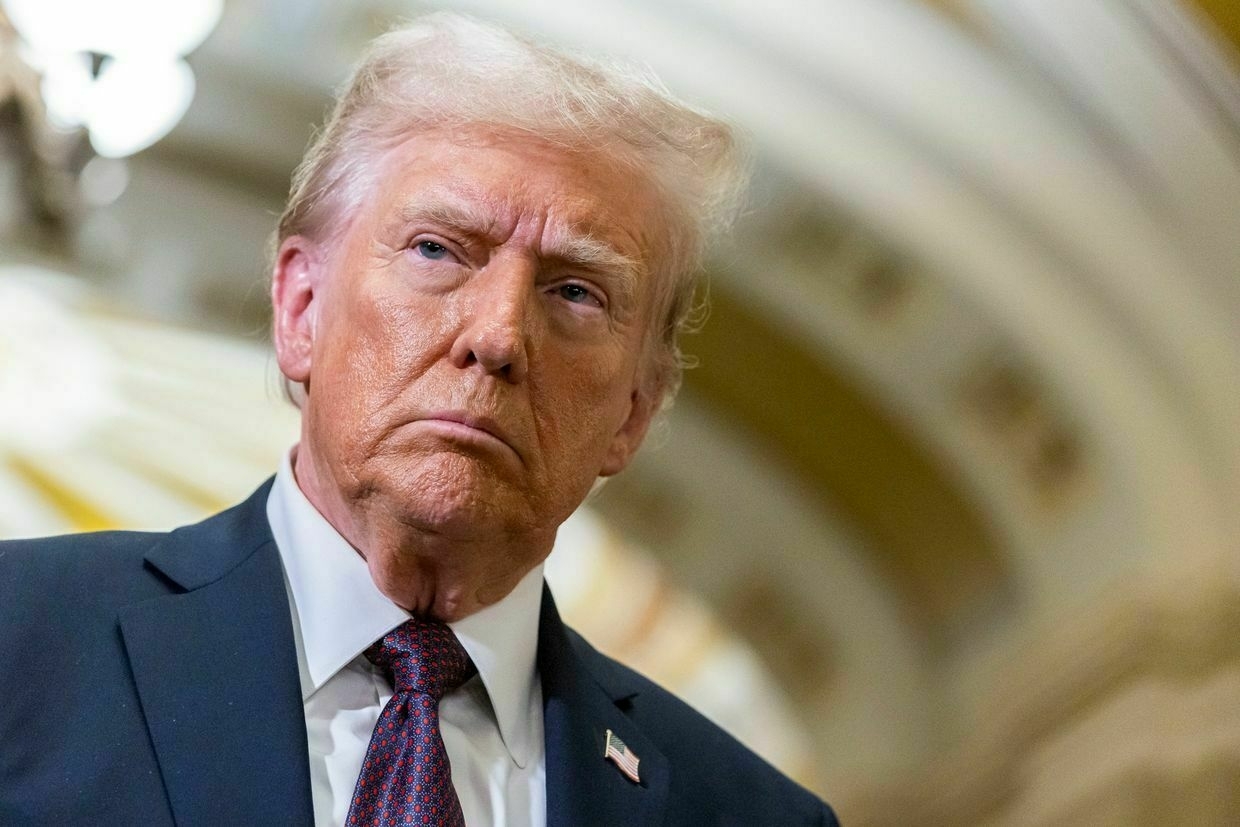
-
CNN gives airtime to Russian ultranationalist ideologue who called for genocide in Ukraine
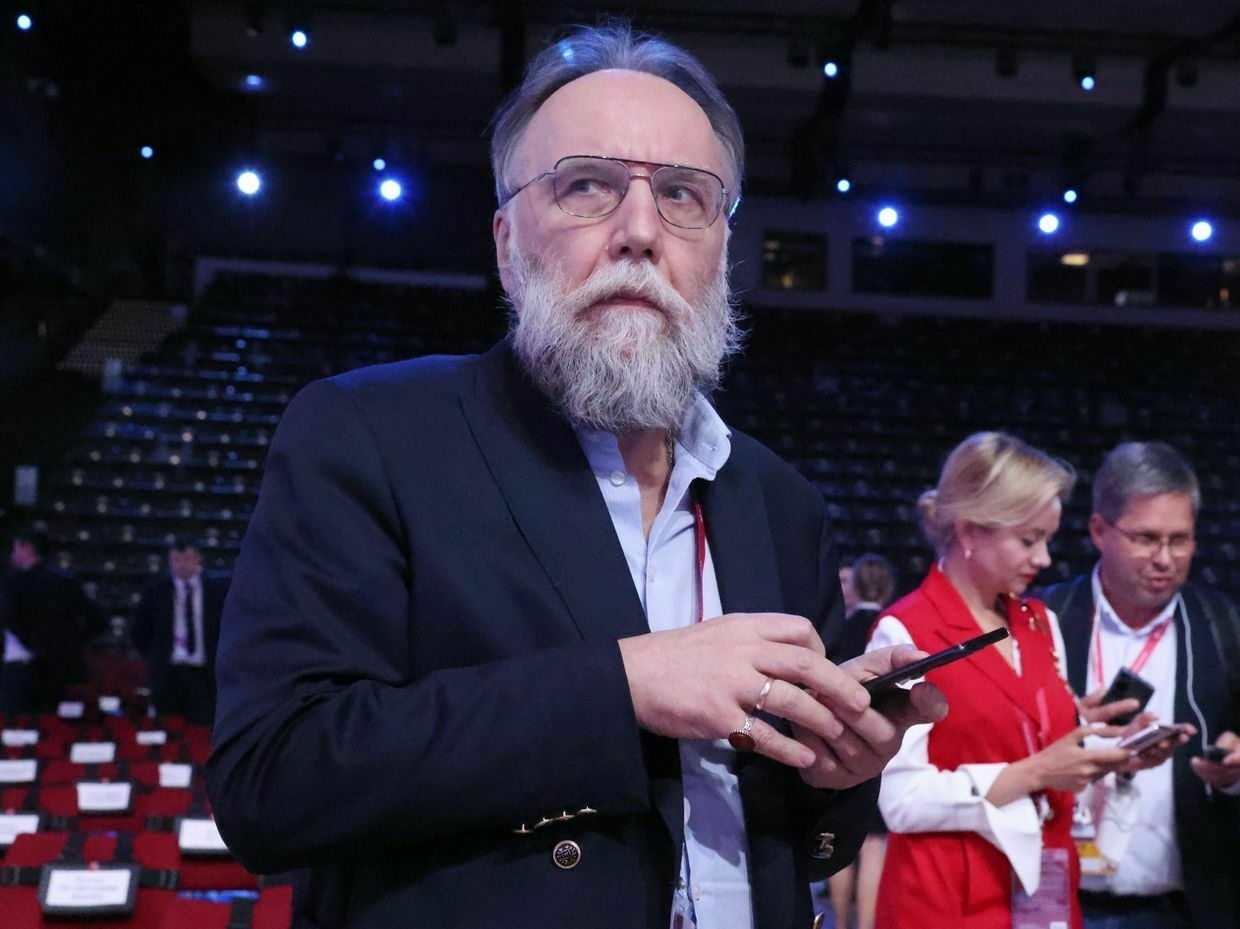
Ultranationalist Russian ideologue Alexander Dugin pinned hopes on Moscow’s relations with the U.S. under Trump’s administration in an interview with CNN aired on March 30.
Dugin, a fervent supporter of Russia’s full-scale invasion of Ukraine, has long been an advocate of Russian imperialism and a leading figure of Russia’s turn toward hardline nationalism and authoritarian rule.
The ideologue is also a suspect and wanted in Ukraine under the articles of genocide and encroachment on the territorial integrity of Ukraine.
In an interview with CNN, Dugin praised U.S. President Donald Trump, saying he represented an ideology that “changes the balance in the world."
“In these new conditions, I think Putin’s Russia and Putin personally stops to be the main enemy, the main evil guy,” Dugin claimed.
“Trumpists and followers of Trump will understand much better what Russia is, who Putin is, and the motivation of our politics,” he added.
According to Dugin, Washington and Moscow have now discovered many common points. He said, however, that it may be too early to talk about an alliance between the U.S. and Russia against Europe.
“If, for example, Trump would withdraw the U.S. from the war against us in Ukraine, there could be a situation that we will fight against European globalists, European liberals in Ukraine without America,” Dugin claimed, parroting long-standing Russian narratives about Washington’s involvement in Russia’s all-out war against Ukraine.
Dugin became widely known after Russia’s full-scale invasion of Ukraine was justified partly by some of his earlier works on Russia’s superiority and its mission to create a “Eurasian Union,” a plan for the integration of Russia with the countries that were formerly part of the Soviet Union.
In the early stages of the Moscow-instigated war in Donbas in 2014, Dugin told Russian state television that “Ukrainians need to be killed, killed, killed."
The same year, Dugin said on the VK social network that “Ukraine needs to be cleansed of idiots. A genocide of cretins is a given."
“I don’t believe that these people are Ukrainians… They are some race of bastards that crept up from the sewers."
In August 2022, he lost his daughter in a car explosion that was most likely intended to target him.
Trump says he’s ‘pissed off’ and ‘very angry’ at Putin in phone interview with NBC NewsU.S. President Donald Trump is reportedly “pissed off” and “very angry” regarding Russian President Vladimir Putin’s fixation over President Volodymyr Zelensky, NBC News reported on March 30.The Kyiv IndependentThe Kyiv Independent news desk
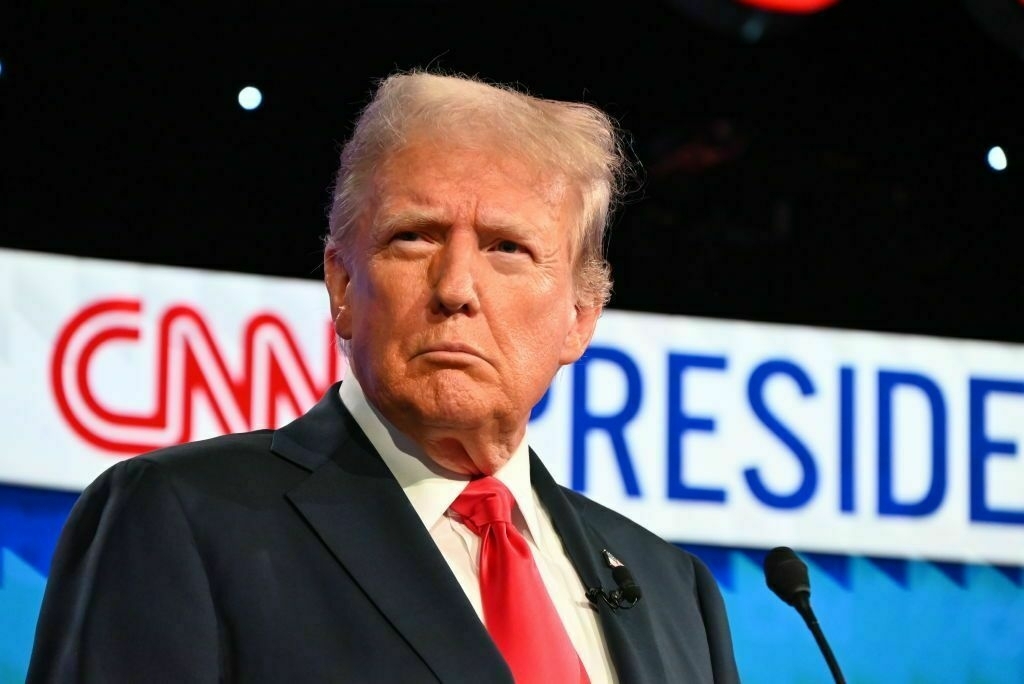
-
There's 'psychological deadline' for Putin to agree to Ukraine ceasefire, Trump says
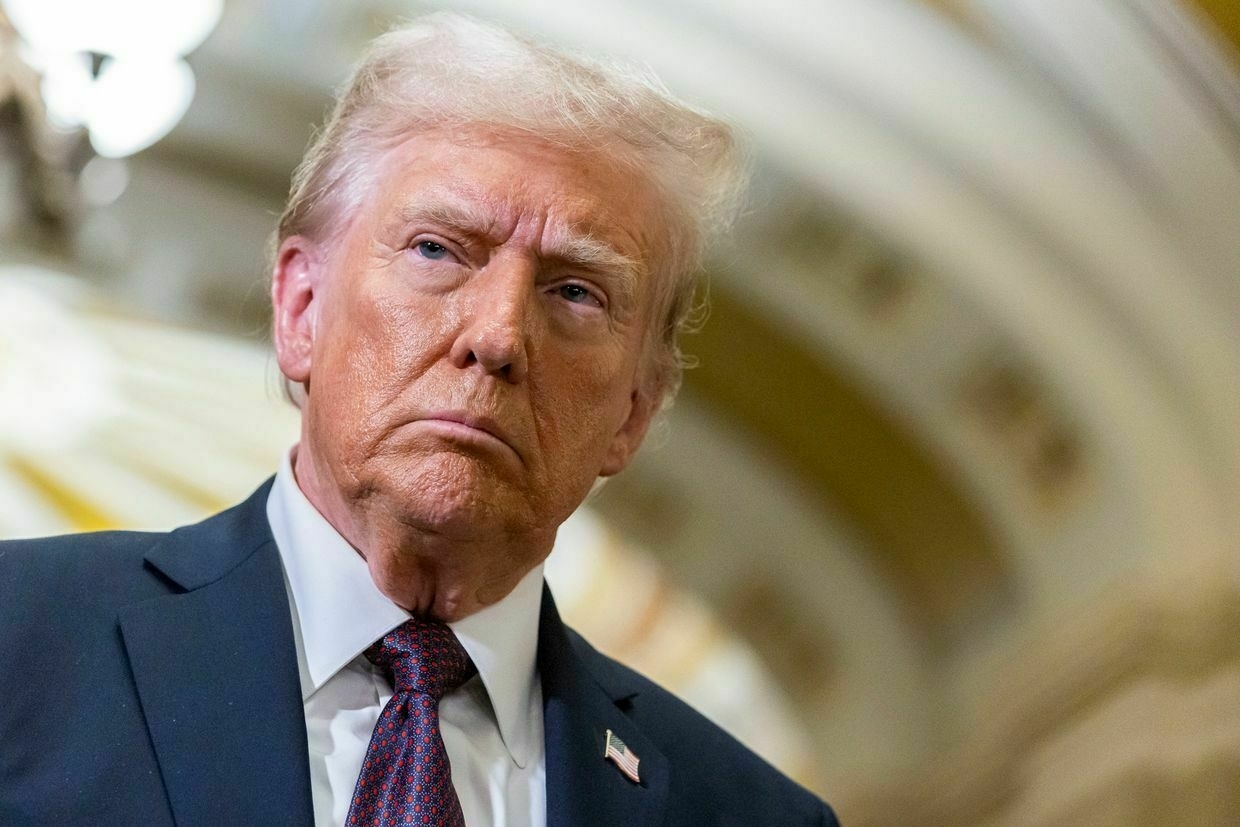
U.S. President Donald Trump said on March 30 that there is a “psychological deadline” for Russian President Vladimir Putin to agree to a ceasefire in Ukraine, without naming a specific date.
“If I think they’re (Russia) tapping us along, I will not be happy about it,” Trump told reporters aboard Air Force One, voicing his belief that the Kremlin’s chief “wants to make a deal."
Trump has softened his rhetoric on Putin after telling NBC News earlier on March 30 he was “pissed off” with the Russian leader over his fixation on President Volodymyr Zelensky, threatening 25%-50% tariffs on Russian oil.
When asked whether his relationship with Putin is at its “lowest point,” Trump said, “No, I don’t think so. I don’t think he’s going to go back on his word… We’ve always gotten along well."
The U.S. president has threatened additional tariffs and sanctions against Russia several times in the past months but has yet to take the step. In turn, Trump has exerted significant pressure on Ukraine to bring it to the negotiating table, including by temporarily cutting off military and intelligence support.
Putin has rejected a full 30-day truce agreed upon by the U.S. and Ukraine in Jeddah on March 11 unless it includes conditions undermining Ukrainian defense capabilities and only agreed to a partial ceasefire on strikes against energy facilities and in the Black Sea.
Kyiv has already accused Russia of violating the energy ceasefire, while the future of the Black Sea ceasefire is in doubt as Moscow has linked it to the lifting of Western sanctions on food producers and some banks.
Finnish President Alexander Stubb, who visited Trump over the weekend at his Mar-a-Lago residence in Florida, said that the U.S. president is frustrated with Russia’s delays. Stubb also proposed April 20 as a “good time” for an unconditional ceasefire.
Trump acknowledged on March 25 that Russia may be “dragging their feet” in peace talks, while Kyiv and other observers warn that Moscow intentionally prolongs the process to allow Russian forces to capture more territory.
Talking to reporters, Trump also criticized Zelensky for allegedly wanting to back out of the U.S.-Ukraine deal on natural resources.
“He’s trying to back out of the rare earth deal and if he does that, he’s got some problems, big, big problems,” Trump said.
“He wants to be a member of NATO, but he’s never going to be a member of NATO. He understands that."
Zelensky said on March 28 that he would not sign a minerals deal that interferes with Ukraine’s plans to join the European Union. Bloomberg reported on March 29 that Kyiv was requesting changes to the current proposal, including greater investment from the U.S. and more clarity on how the joint fund would operate.
Trump says he’s ‘pissed off’ and ‘very angry’ at Putin in phone interview with NBC NewsU.S. President Donald Trump is reportedly “pissed off” and “very angry” regarding Russian President Vladimir Putin’s fixation over President Volodymyr Zelensky, NBC News reported on March 30.The Kyiv IndependentThe Kyiv Independent news desk
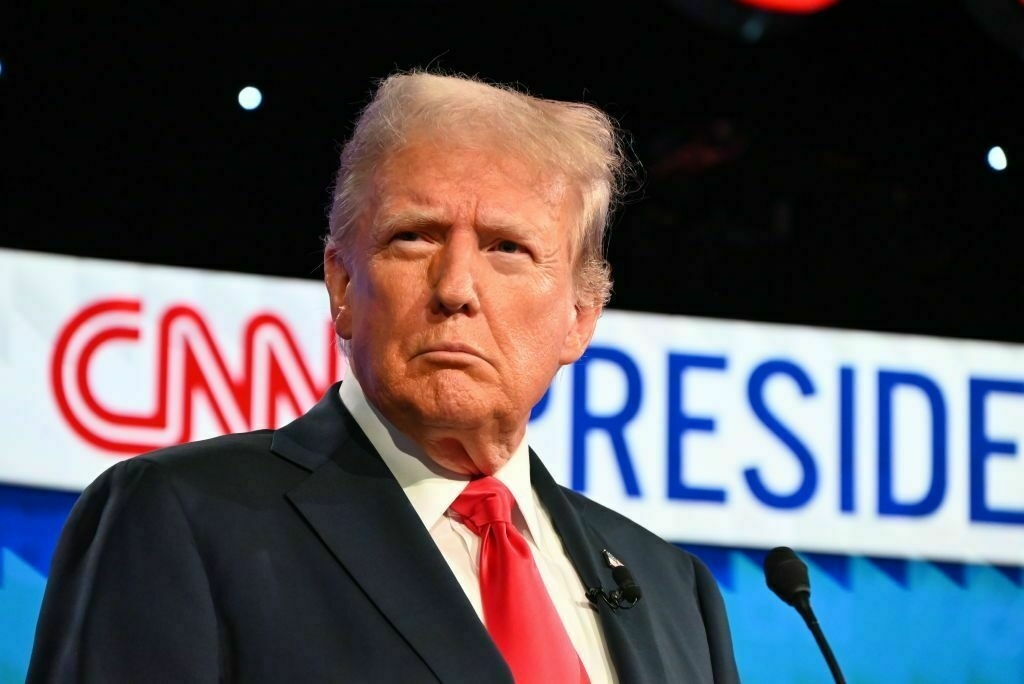
-
Russian attacks against Ukraine kill 2, injure 17 over past day
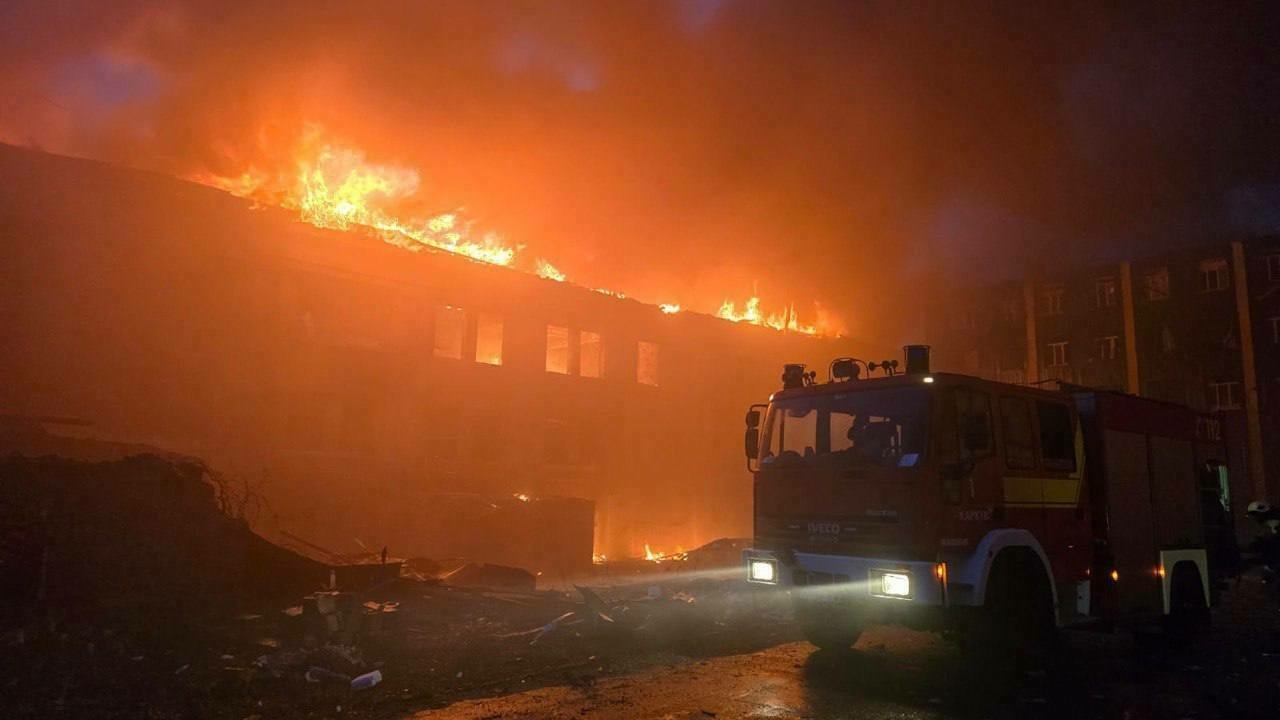
Russian attacks against Ukraine killed two civilians and injured 17 others over the past day, regional authorities said on March 31.
Ukrainian forces downed 57 out of 131 Shahed-type drones and decoy drones launched by Russia overnight, the Air Force reported. Another 45 drones disappeared from radars, according to the statement.
Drones that disappear from radars before reaching their targets are usually decoys. Russia launches them alongside strike drones to overwhelm Ukraine’s air defense.
Moscow’s forces also launched two Iskander-M ballistic missiles from Kursk Oblast overnight, the Air Force said, without elaborating on the consequences of the missile attacks.
Russian forces dropped a guided aerial bomb on a five-story building in Kupiansk in Kharkiv Oblast, injuring two men and three women, Governor Oleh Syniehubov reported.
Two people were killed in the city of Pokrovsk in Donetsk Oblast, Governor Vadym Filashkin said.
One person was injured in a community in Sumy Oblast as a result of Russian attacks, local authorities reported.
In Kherson Oblast, Russian forces targeted 33 settlements, including the regional center of Kherson. Eleven people were injured, Governor Oleksandr Prokudin reported.
Ukraine war latest: Putin will have nothing to say at peace negotiations, Zelensky saysKey developments on March 29-30: * Putin will have nothing to say at peace negotiations, Zelensky says. * Russia preparing new offensive in ‘coming weeks’ to strengthen negotiating position, AP reports. * Russian negotiator suggests ceasefire may not be reached in 2025. * Trump says he’s ’pisse…The Kyiv IndependentThe Kyiv Independent news desk
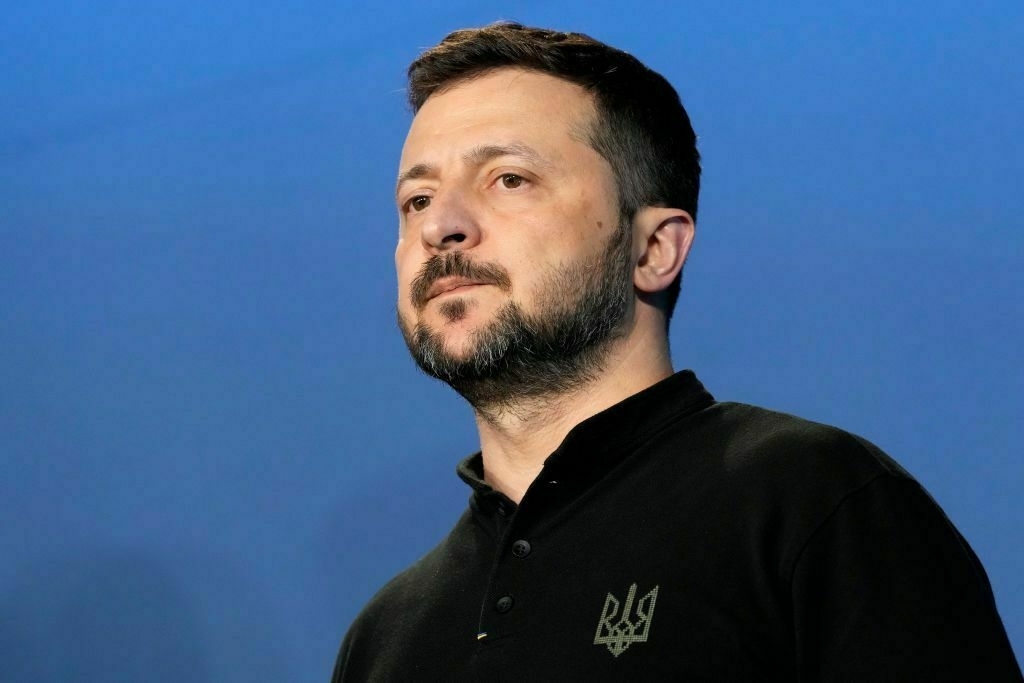
-
US, Russia begin talks on rare earth minerals projects, Moscow claims
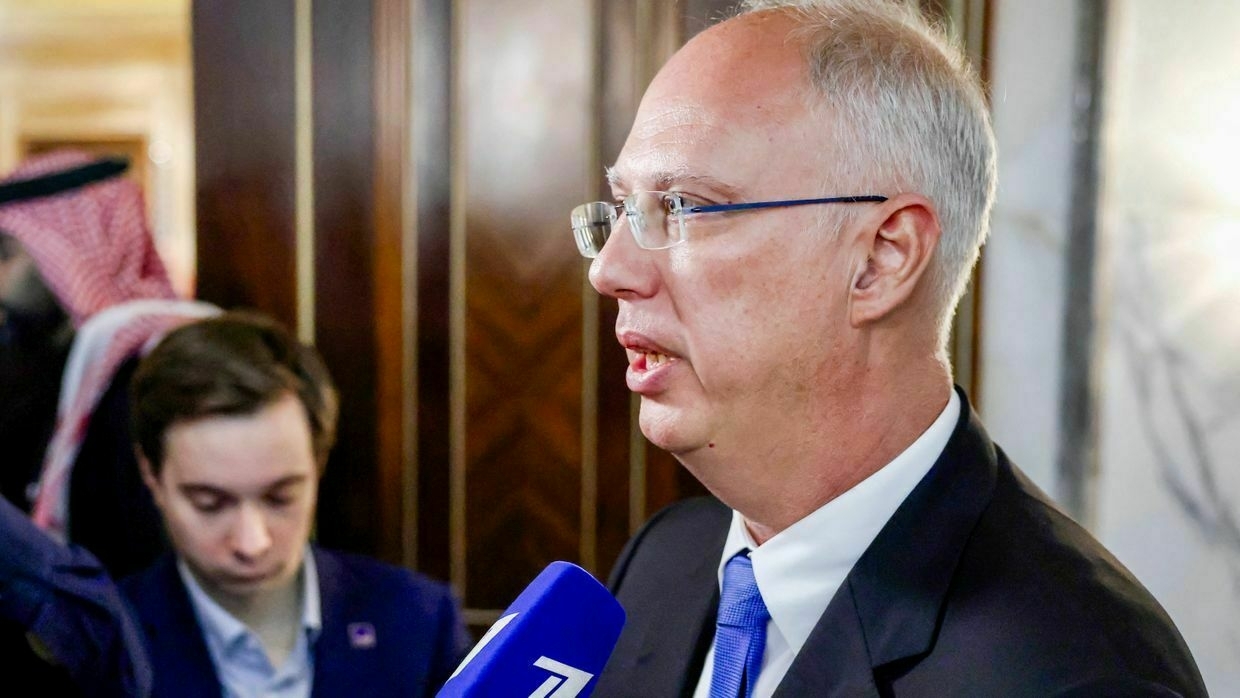
Washington and Moscow have begun discussions on projects related to Russian rare earth minerals, said Kirill Dmitriev, head of Russia’s sovereign wealth fund, in an interview with the Russian newspaper Izvestia published on March 31.
The news comes as the Trump administration pushes for a swift ceasefire in Ukraine and explores venues for economic cooperation with Russia.
“Rare earth metals are an important area for cooperation, and, of course, we have begun discussions about various rare earth metals and projects in Russia,” said Dmitriev, who also serves as presidential representative for economic cooperation with foreign countries.
Some companies have already demonstrated interest in the projects, the official claimed.
Dmitriev was one of Russia’s negotiators during the Trump administration’s first direct talks in Saudi Arabia in February.
The Feb. 18 talks were followed by two more rounds of discussions, with a meeting on March 24 focusing on a partial ceasefire in Ukraine. Dmitriev said that the next round would take place in mid-April and concern both political issues and economic cooperation.
Russian President Vladimir Putin said in February that Russia is open to working with the U.S. in developing rare earth deposits, including in the occupied parts of Ukraine, which Putin called “newly controlled regions."
U.S. President Donald Trump has also pushed for a deal on natural resources with Ukraine, though multiple sources indicated that its latest iteration imposes harsh conditions on Kyiv and would potentially endanger its EU accession efforts.
U.S. President Donald Trump said on March 30 that Ukraine’s President Volodymyr Zelensky is looking to back out of a critical minerals agreement, warning him of “big, big problems” if he does so.
Trump says he’s ‘pissed off’ and ‘very angry’ at Putin in phone interview with NBC NewsU.S. President Donald Trump is reportedly “pissed off” and “very angry” regarding Russian President Vladimir Putin’s fixation over President Volodymyr Zelensky, NBC News reported on March 30.The Kyiv IndependentThe Kyiv Independent news desk
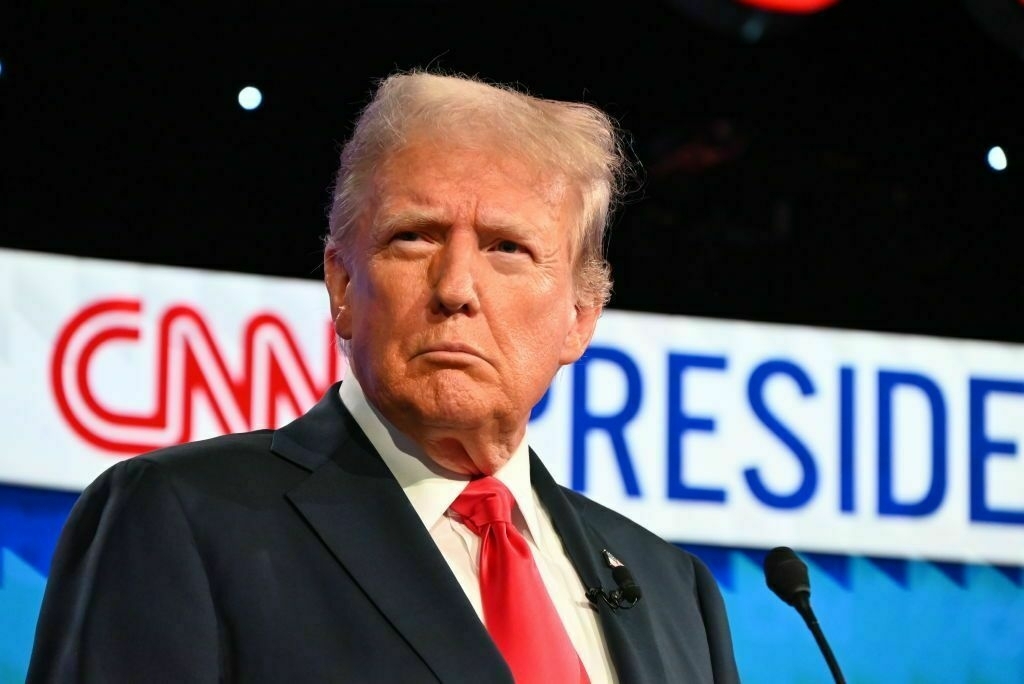
-
General Staff: Russia has lost 915,230 troops in Ukraine since Feb. 24, 2022
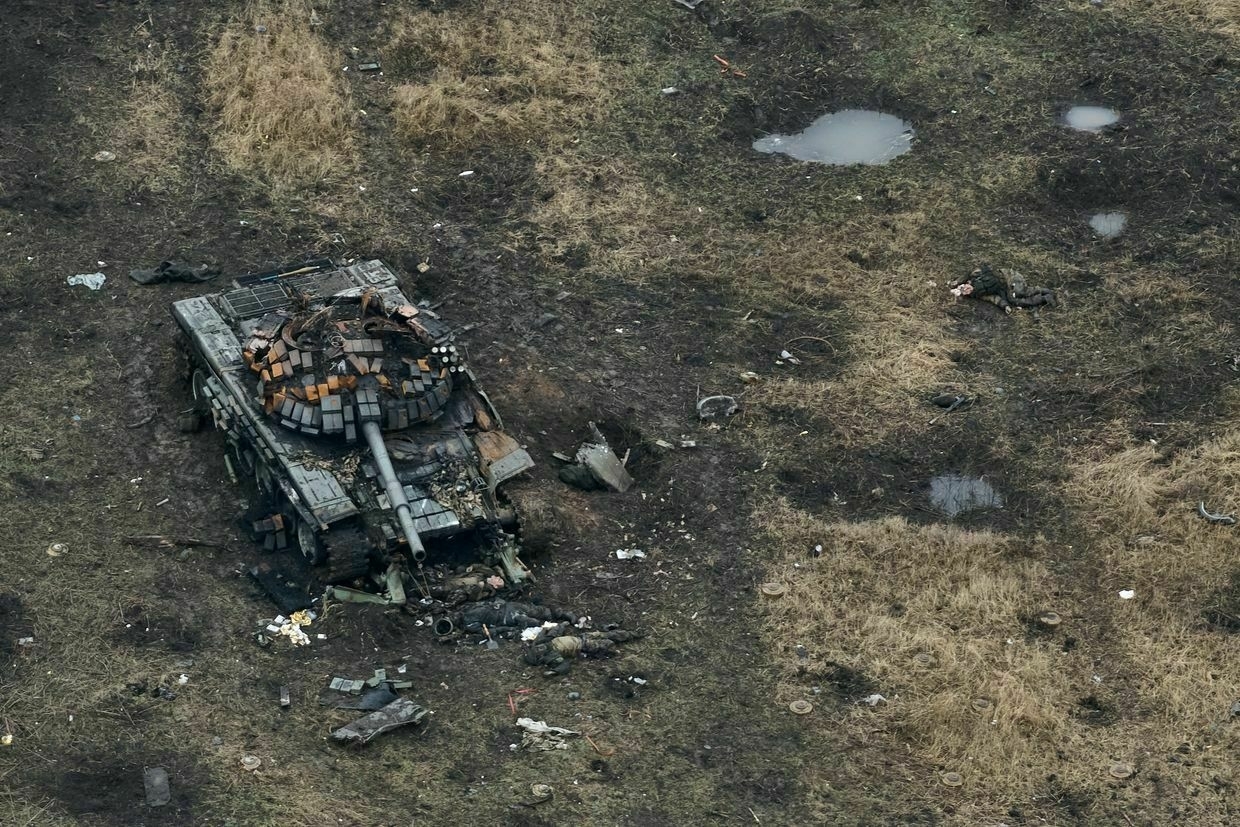
Russia has lost 915,230 troops in Ukraine since the beginning of its full-scale invasion on Feb. 24, 2022, the General Staff of Ukraine’s Armed Forces reported on March 31.
This number includes 1,230 casualties Russian forces suffered just over the past day.
According to the report, Russia has also lost 10,496 tanks, 21,819 armored fighting vehicles, 42,593 vehicles and fuel tanks, 25,537 artillery systems, 1,347 multiple launch rocket systems, 1,123 air defense systems, 370 airplanes, 335 helicopters, 31,416 drones, 28 ships and boats, and one submarine.
Ukraine war latest: Putin will have nothing to say at peace negotiations, Zelensky saysKey developments on March 29-30: * Putin will have nothing to say at peace negotiations, Zelensky says. * Russia preparing new offensive in ‘coming weeks’ to strengthen negotiating position, AP reports. * Russian negotiator suggests ceasefire may not be reached in 2025. * Trump says he’s ’pisse…The Kyiv IndependentThe Kyiv Independent news desk
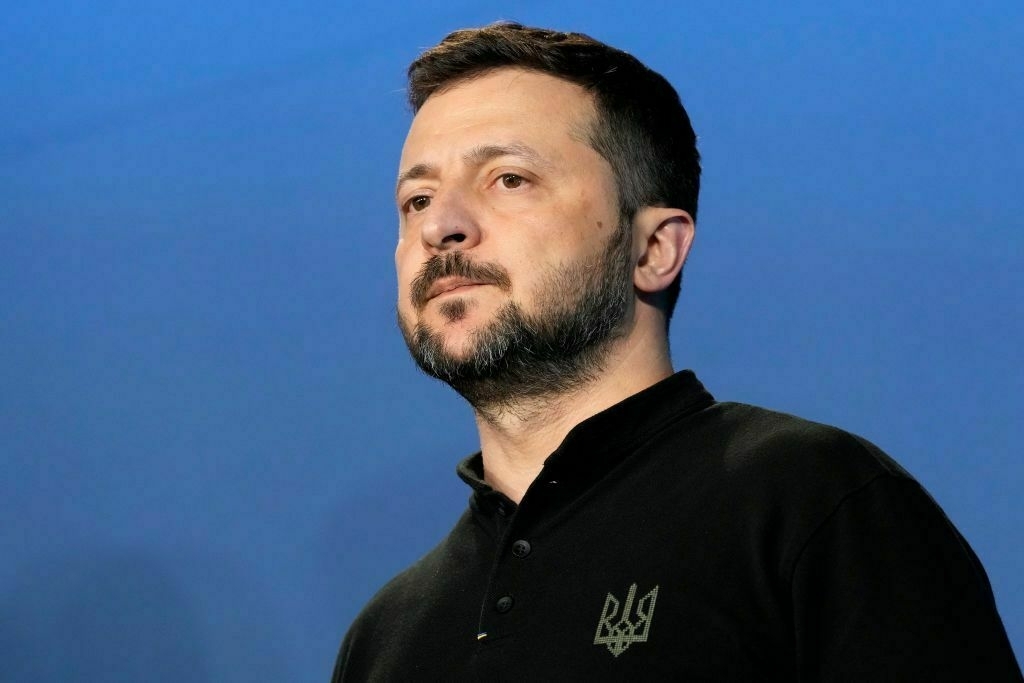
-
Escalation Ep 6: Nothing Else Matters
In 2019, the relationship between The United States and Ukraine faces one of its biggest tests during a phone call between Donald Trump and Volodymyr Zelenskyy. The resulting scandal makes Ukraine a toxic issue for some lawmakers in the US Congress, where Ukrainian veterans are still trying to generate support for the war to this day.
Hosted on Acast. See acast.com/privacy for more information.
-
Doctors resume operating on patients at military hospital hit by Russian strike

A hospital for injured Ukrainian soldiers in Kharkiv has resumed performing operations after the facility was hit by a Russian drone strike on March 29, the hospital announced on March 30.
The military hospital was deliberately targeted in a Russian attack that killed two people and injured 25 others in Kharkiv and the surrounding oblast.
“As a result of the night attack by Shaheds, patients and staff at the hospital were injured, and several buildings were damaged,” the hospital said in a social media post following the drone strike.
“But now operations have resumed in the operating rooms, which were damaged by the blast wave. The hospital cannot stop providing assistance and treating patients for even a minute."
Edouard Khorosun, the head of the military medical center, called the strike on the hospital “an act of terrorism.”
Multiple explosions rocked Kharkiv the night of March 29. Russian drones damaged a shopping center, several residential buildings, and an office building in addition to the hospital.
The attack killed a 67-year-old man and a 70-year-old woman, and left 25 others injured, including five children, Kharkiv Oblast Governor Oleh Syniehubov reported.
A 15-year-old girl was hospitalized in serious condition following the strike.
President Volodymyr Zelensky on March 30 said that the attack on Kharkiv is yet another sign that Russian President Vladmir Putin is not interested in moving towards a ceasefire.
“The geography and brutality of Russian strikes, not just occasionally, but literally every day and night, show that Putin couldn’t care less about diplomacy,” he said.
Kharkiv Oblast in Ukraine’s northeast is a regular target of Russian missile, drone, and glide bomb attacks.
Ukraine war latest: Putin will have nothing to say at peace negotiations, Zelensky saysKey developments on March 29-30: * Putin will have nothing to say at peace negotiations, Zelensky says. * Russia preparing new offensive in ‘coming weeks’ to strengthen negotiating position, AP reports. * Russian negotiator suggests ceasefire may not be reached in 2025. * Trump says he’s ’pisse…The Kyiv IndependentThe Kyiv Independent news desk
